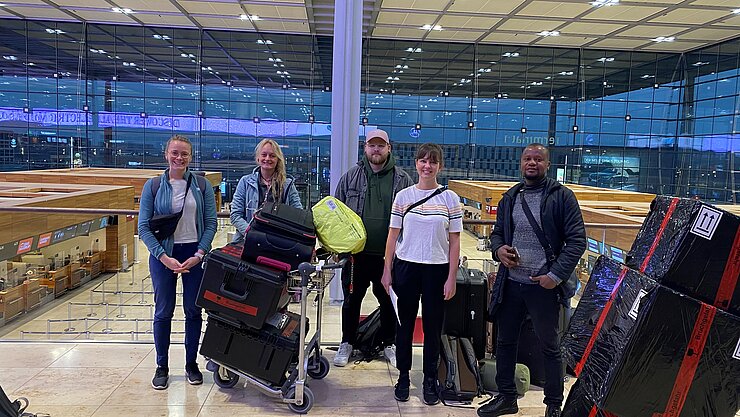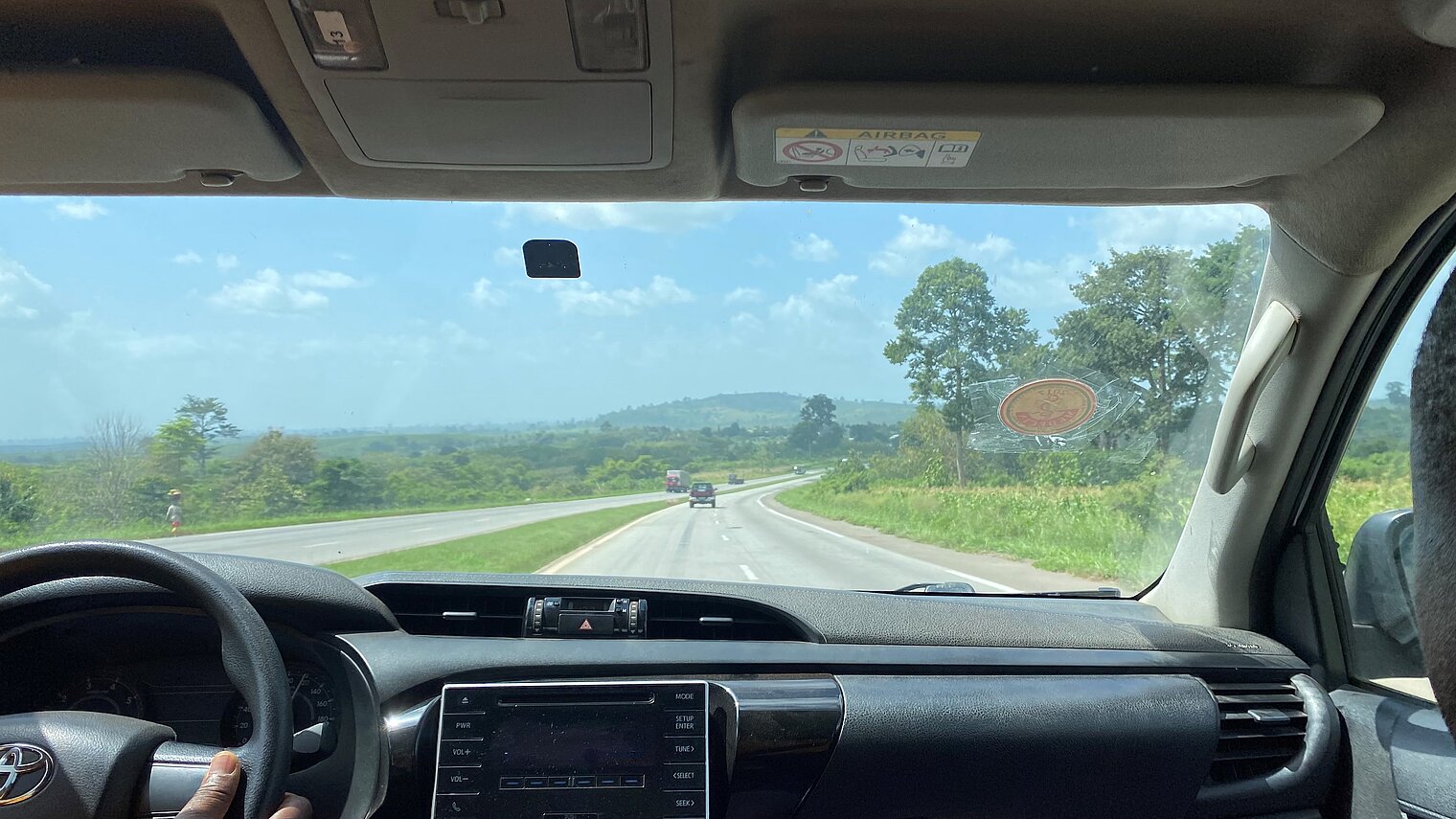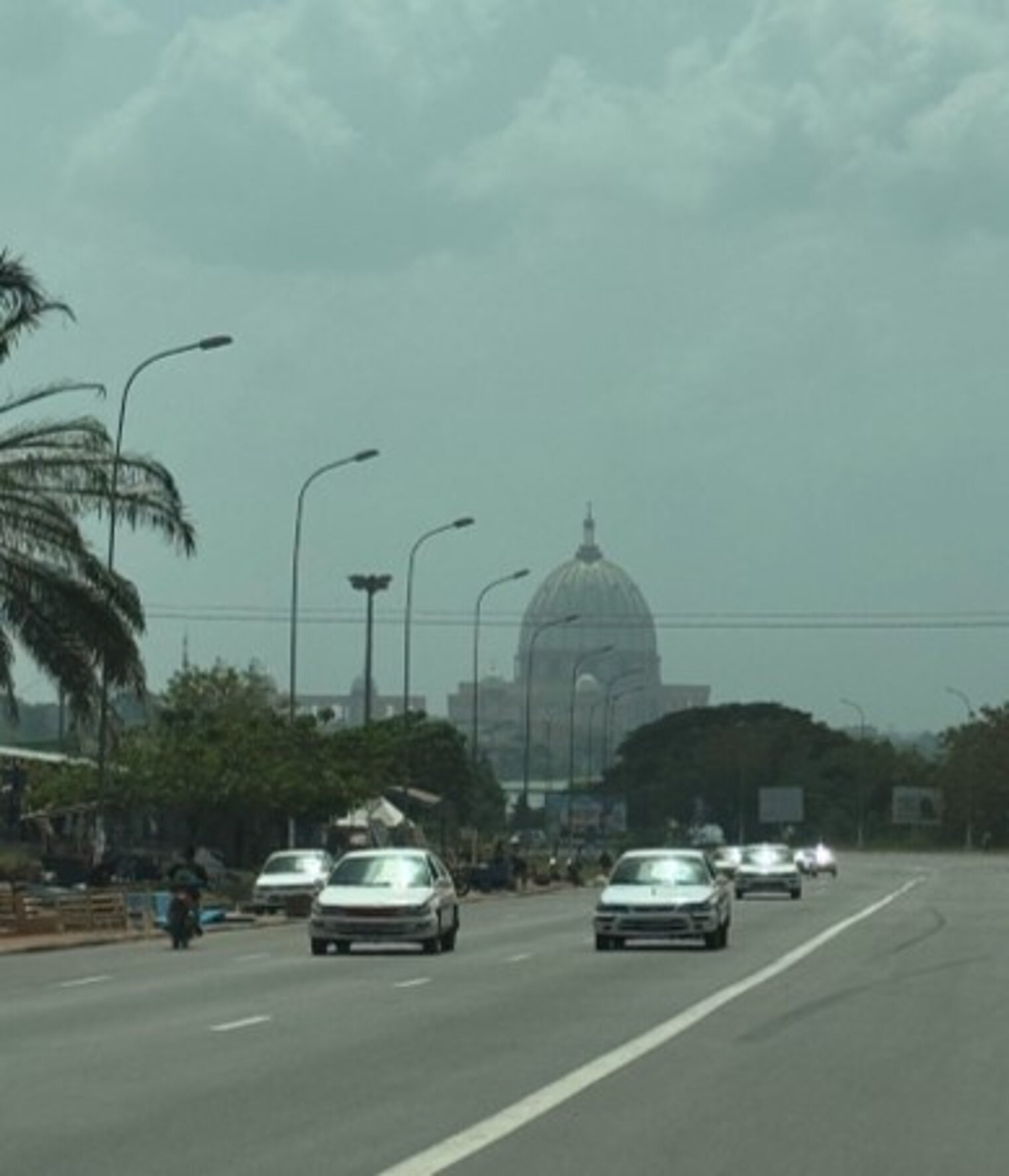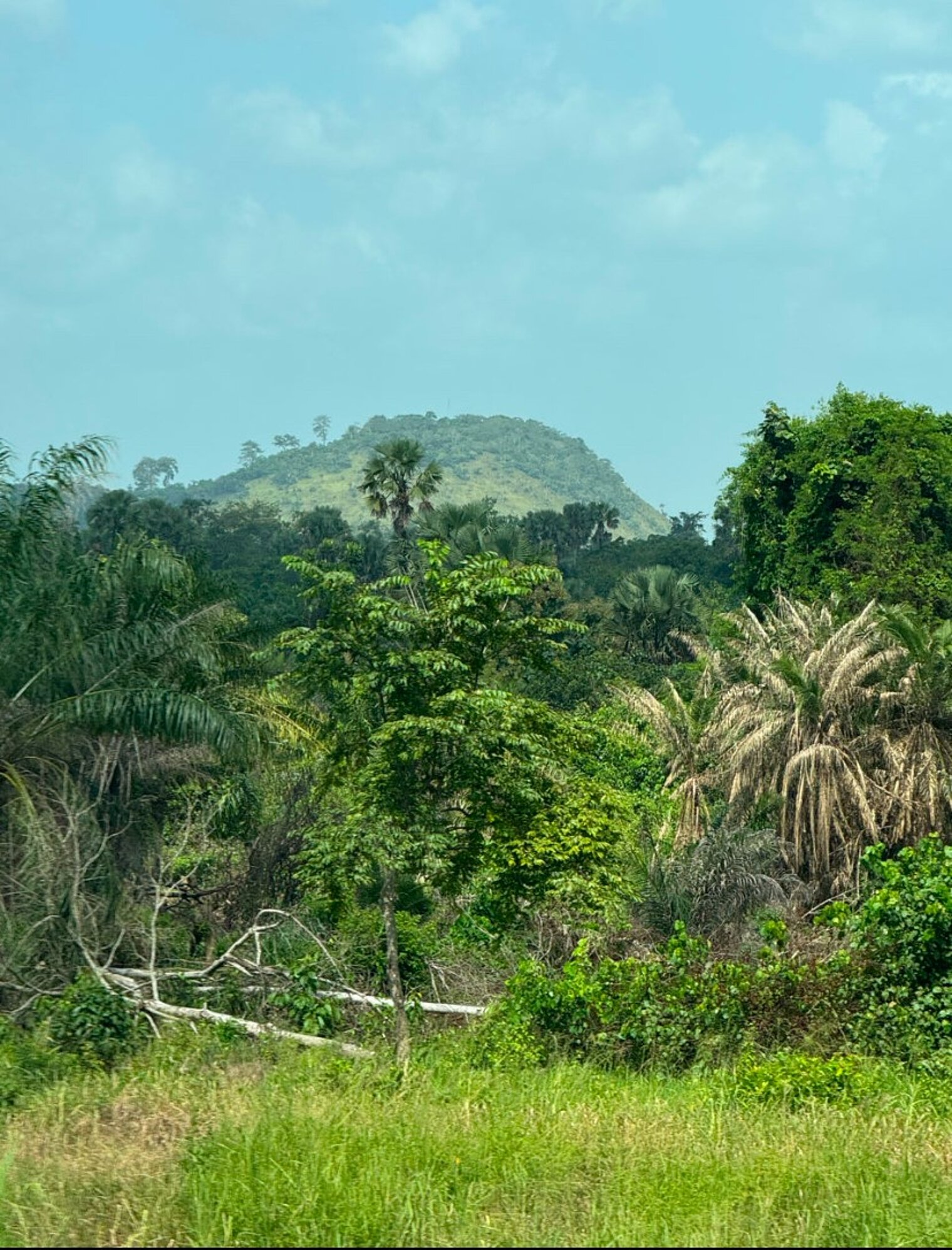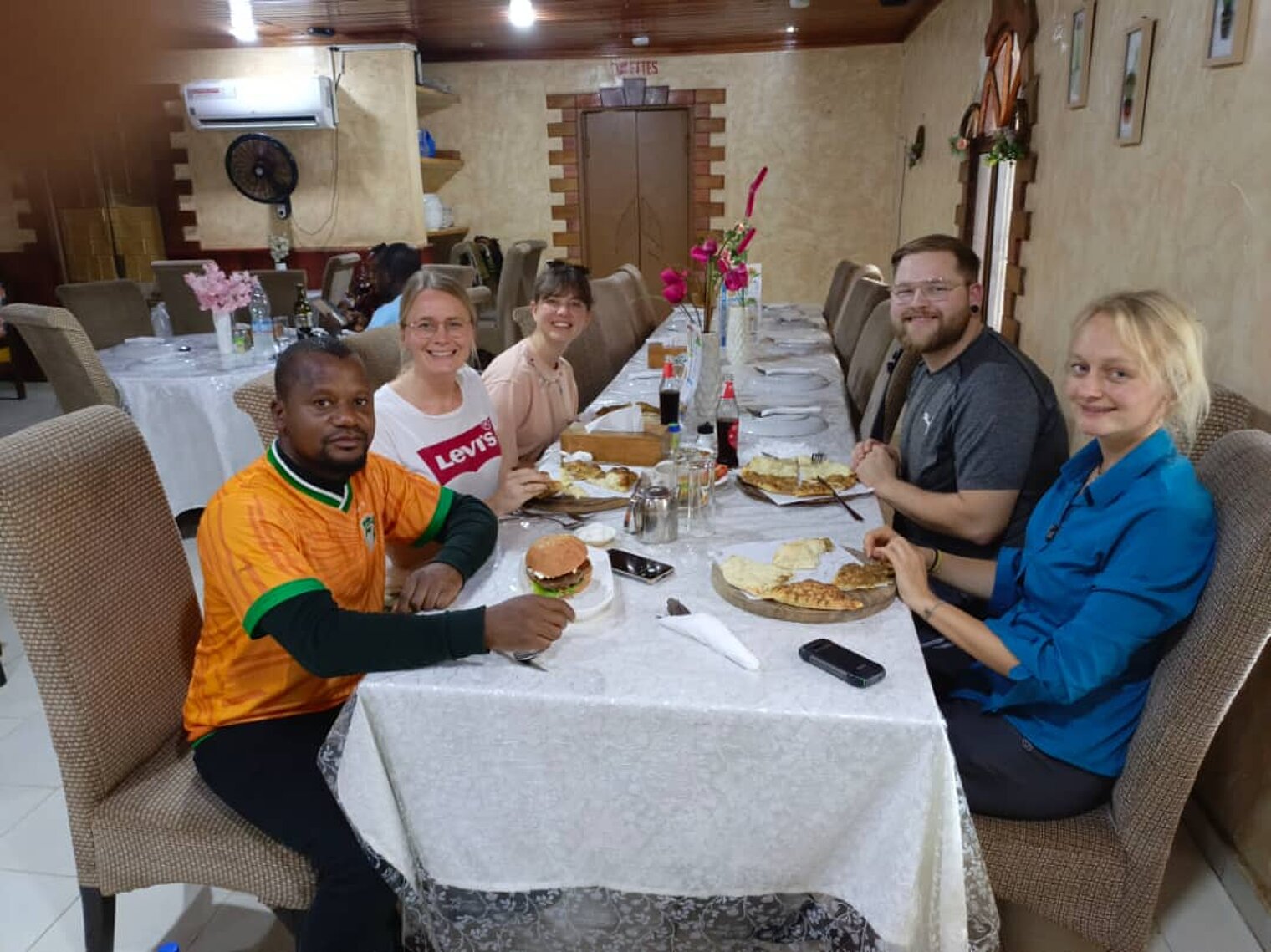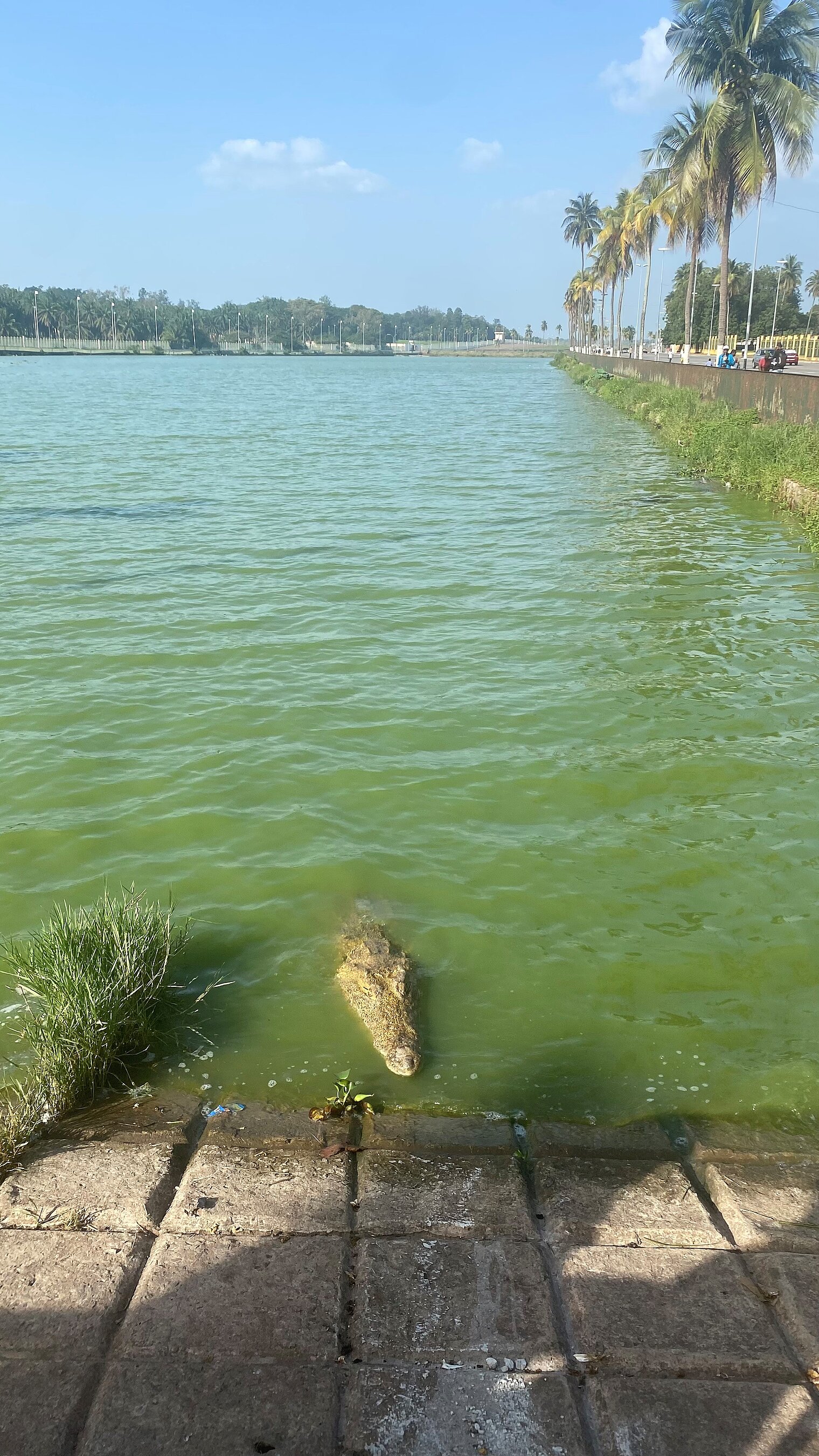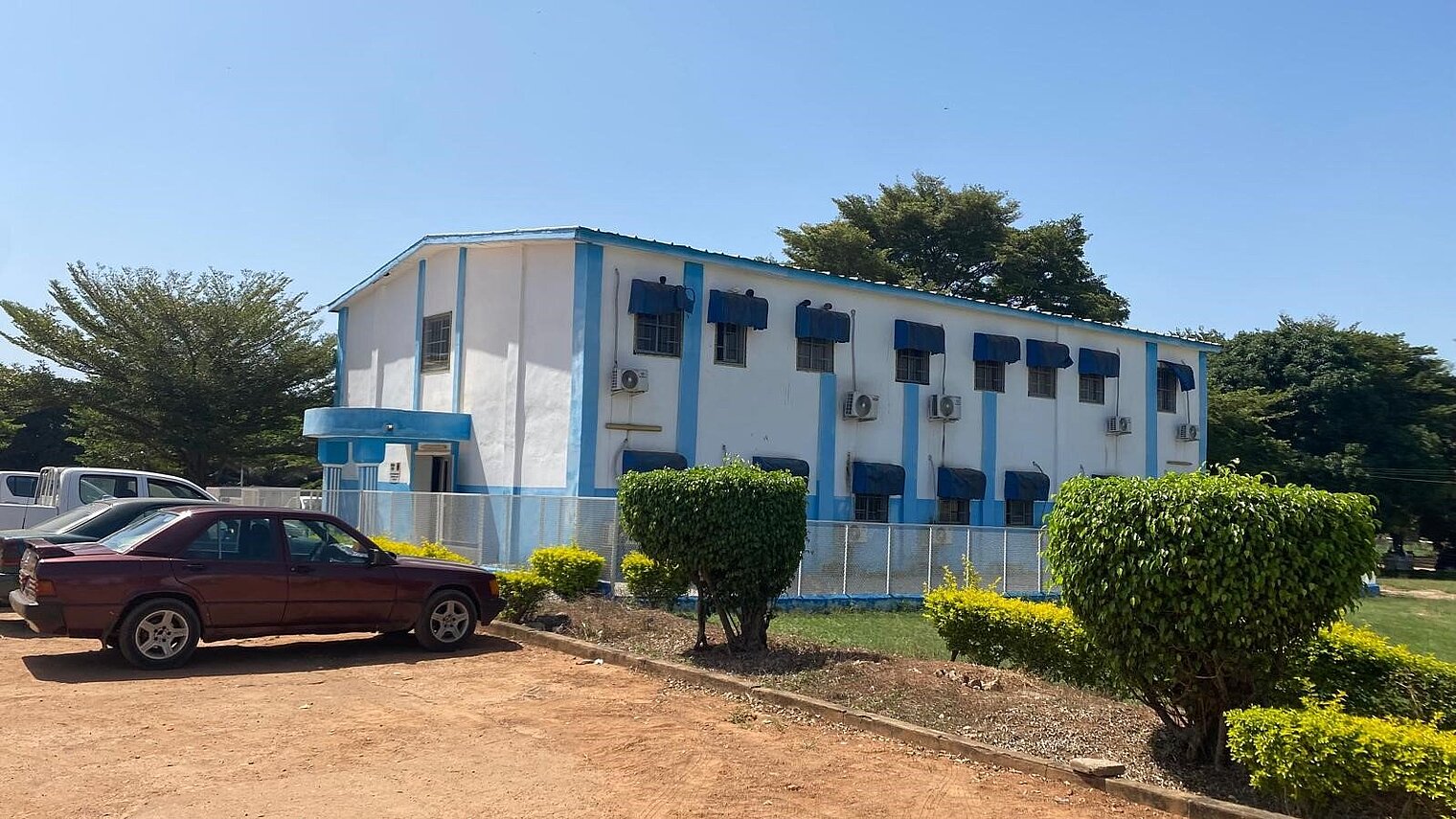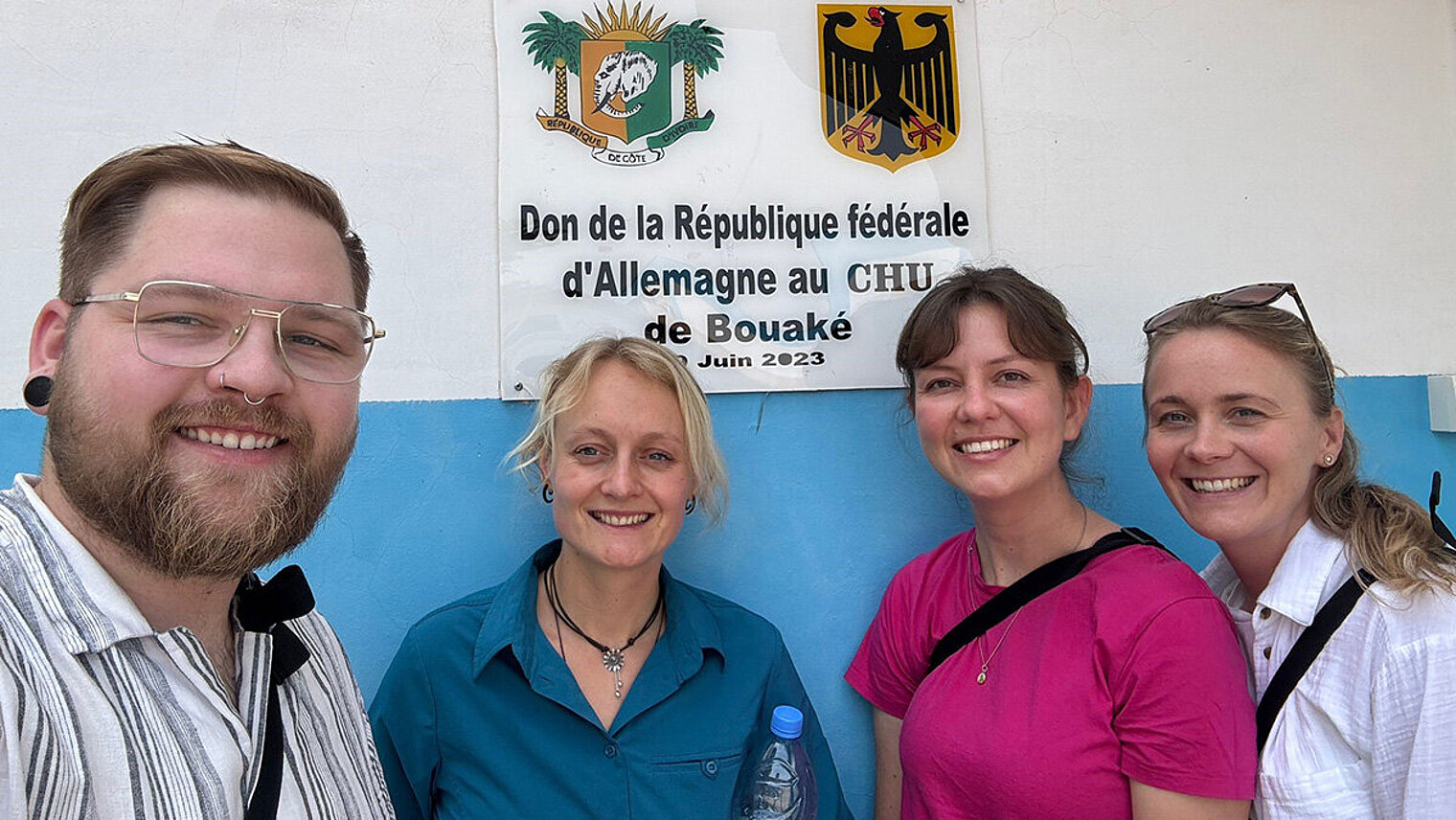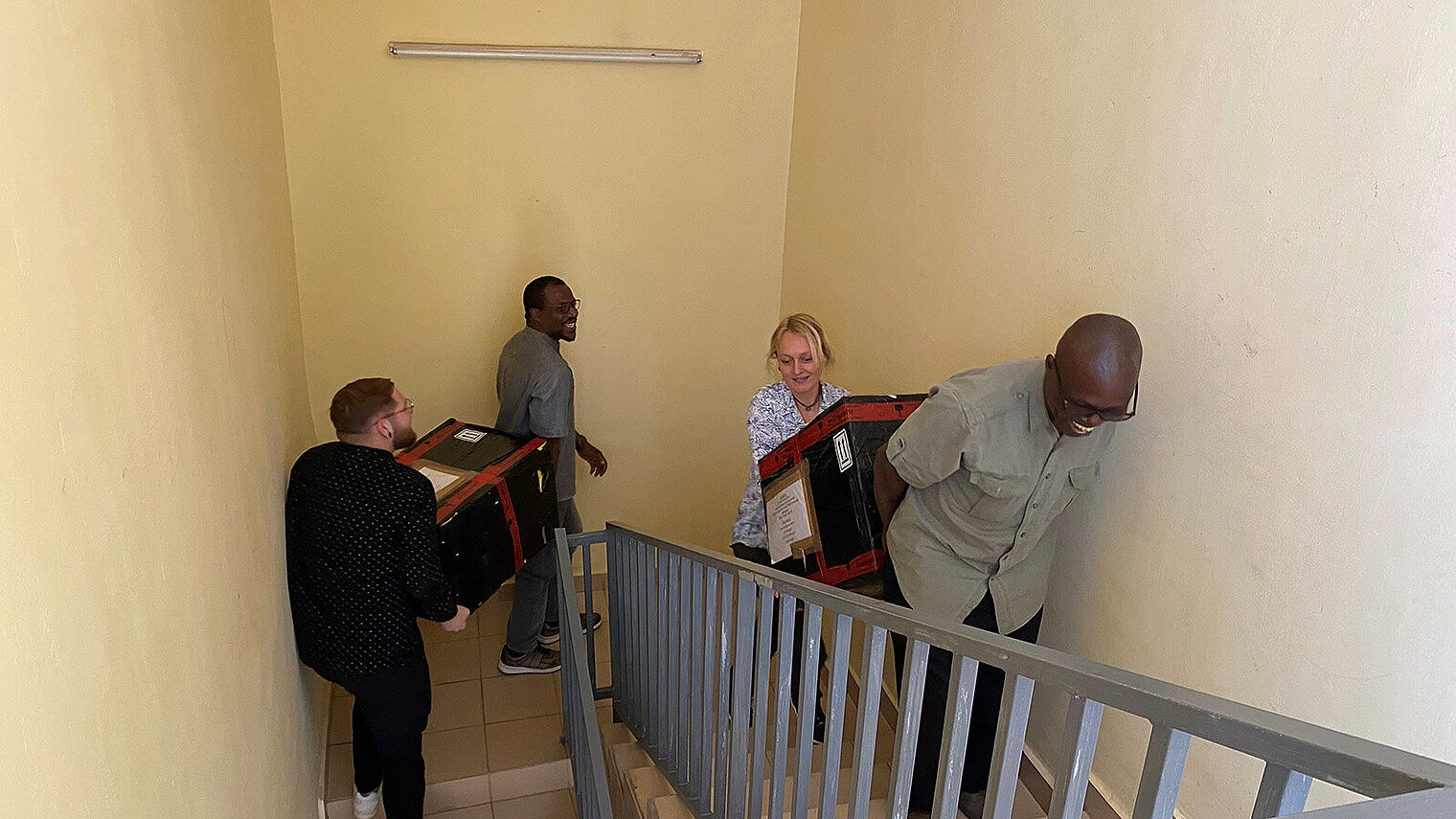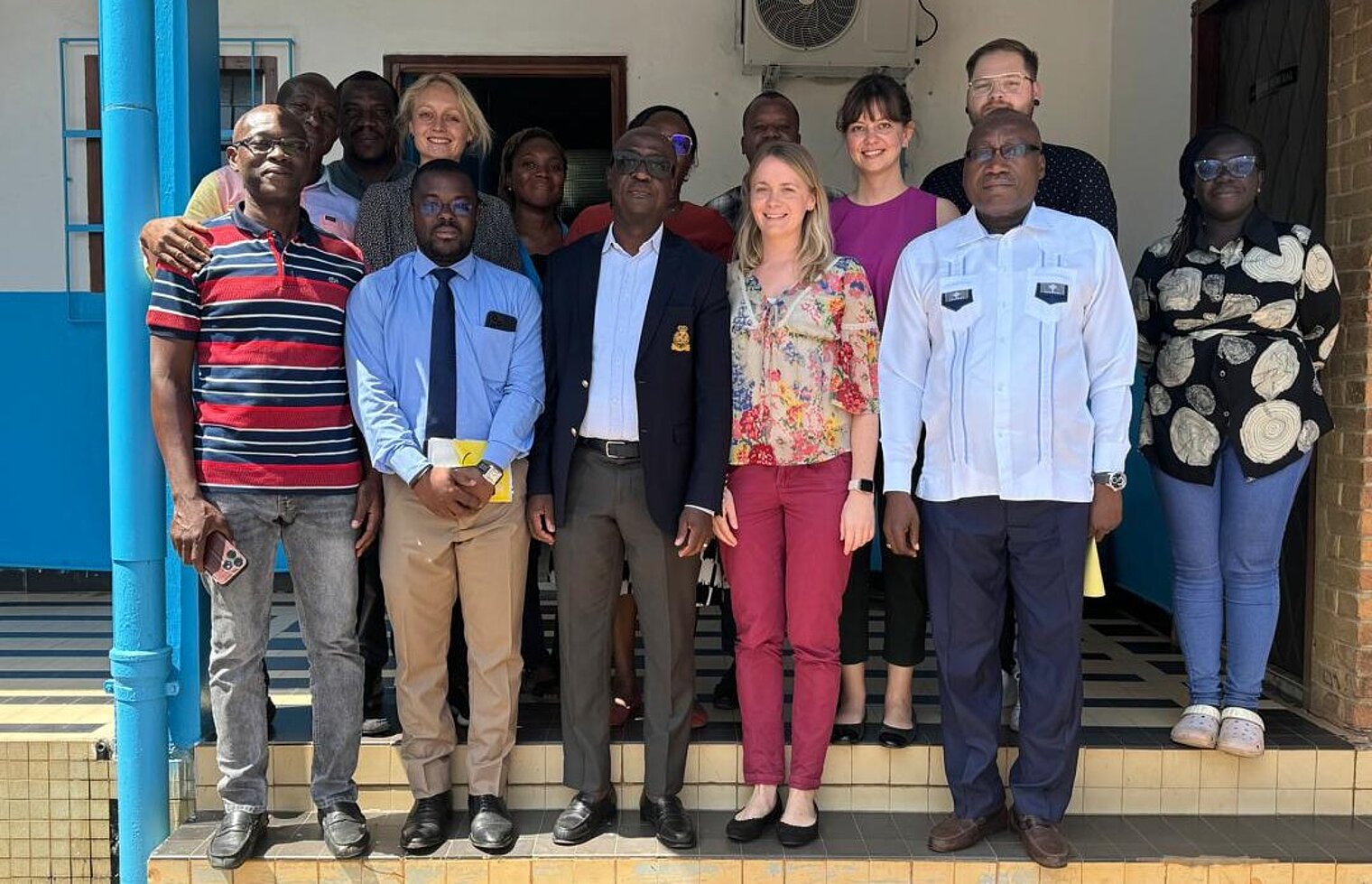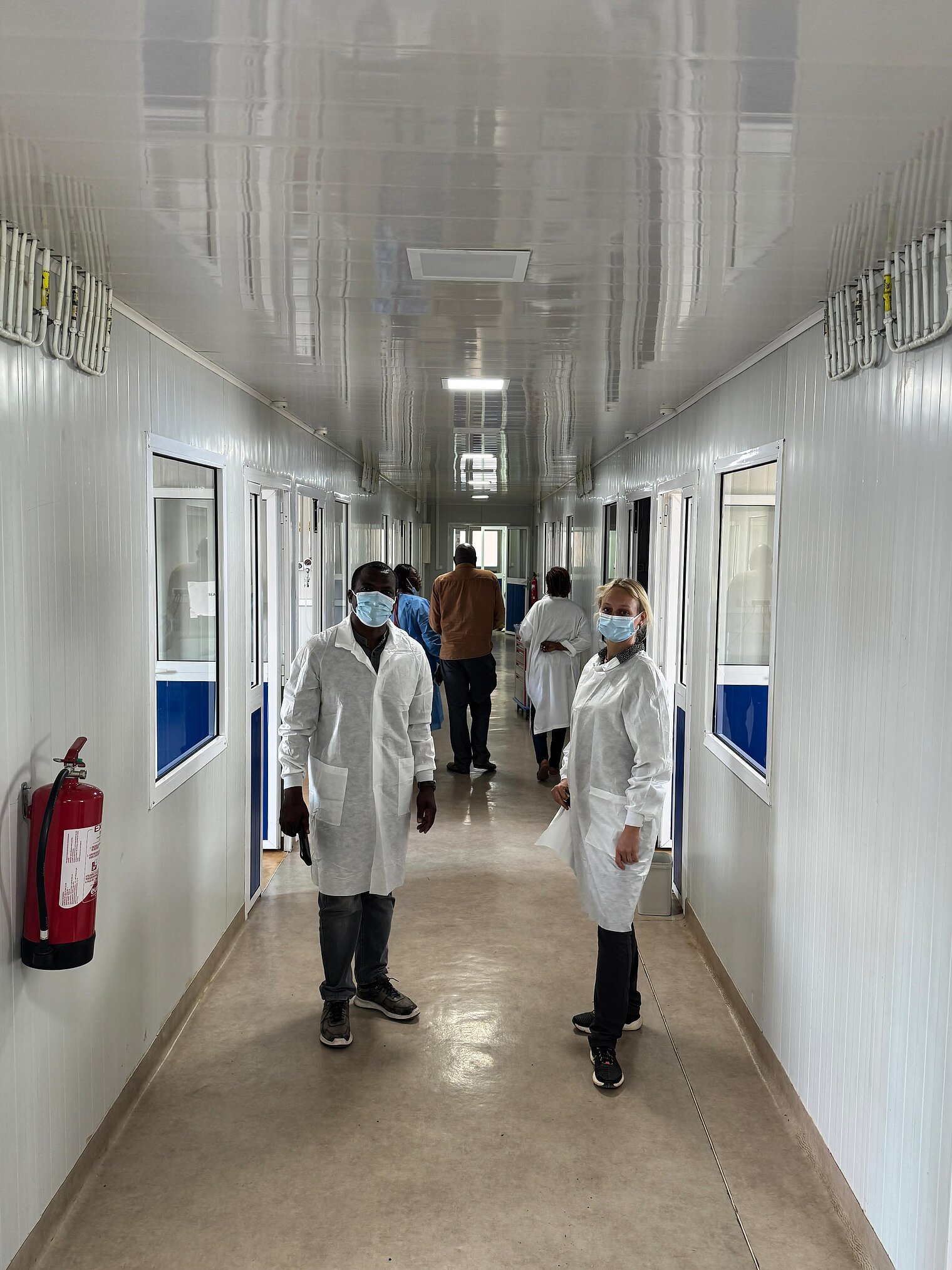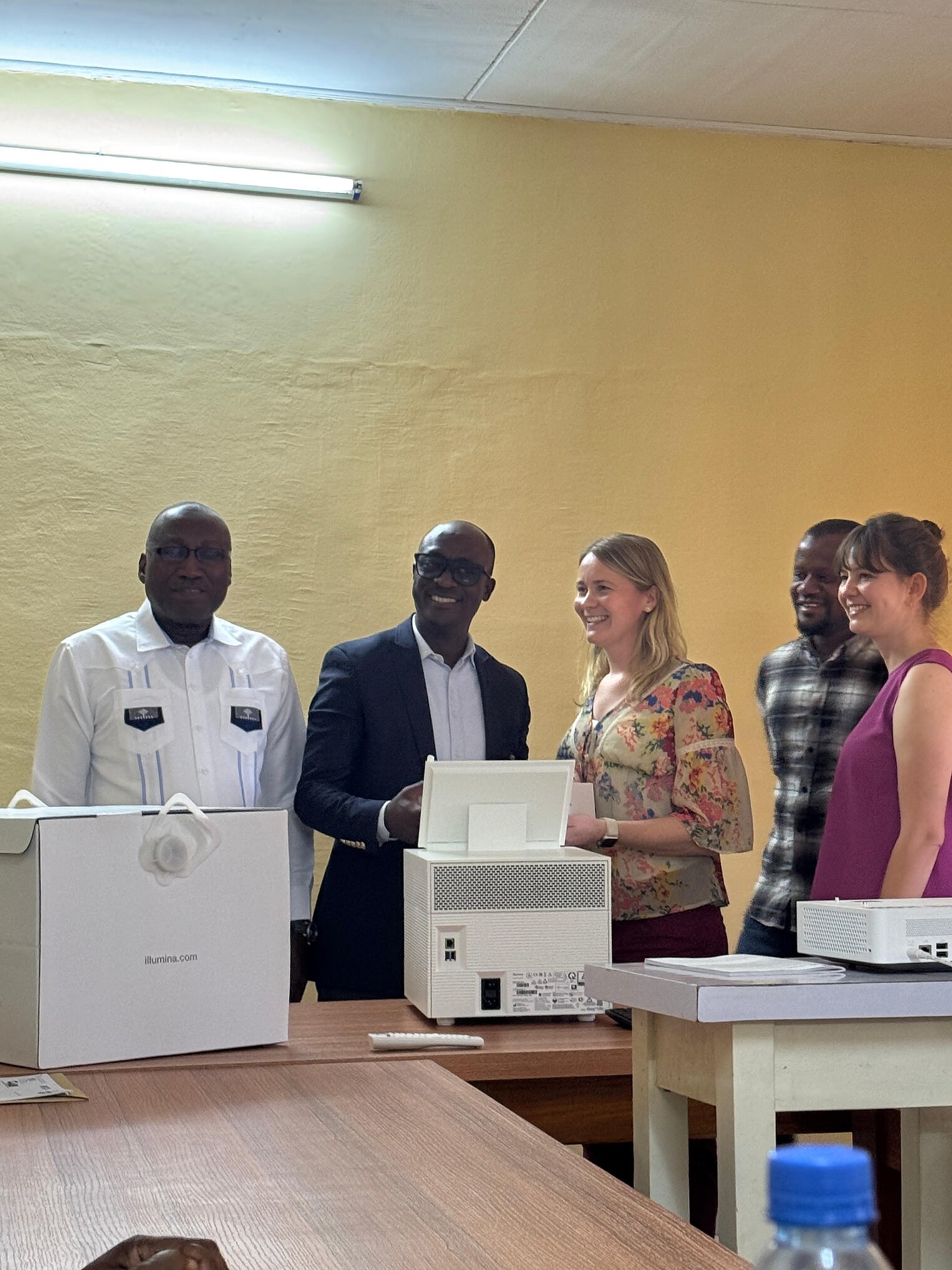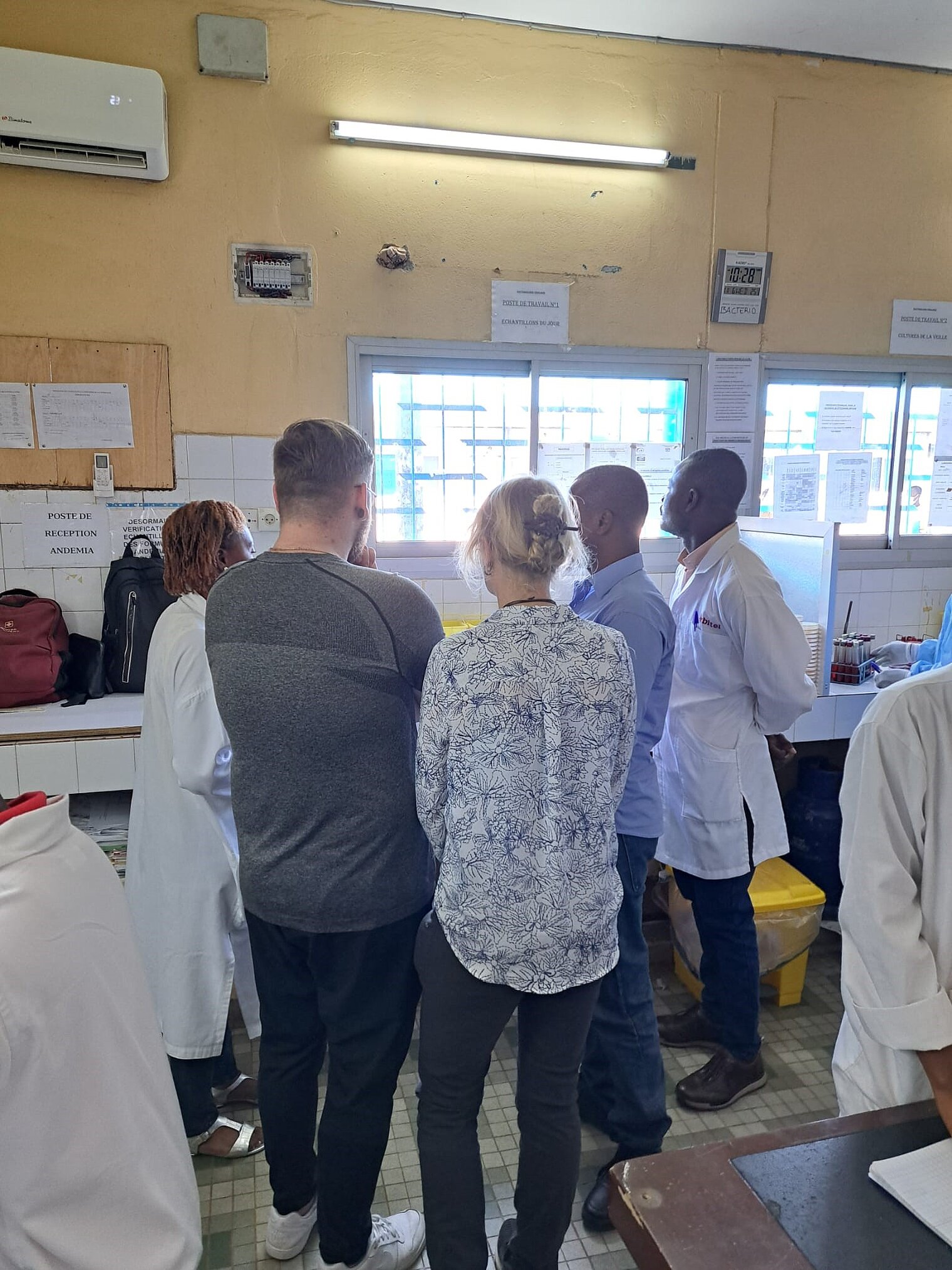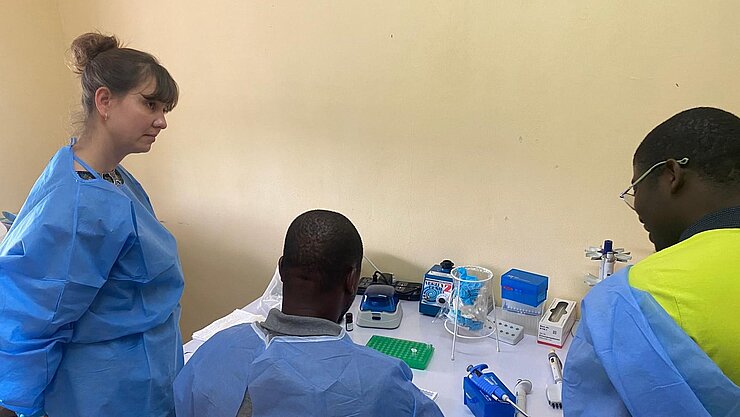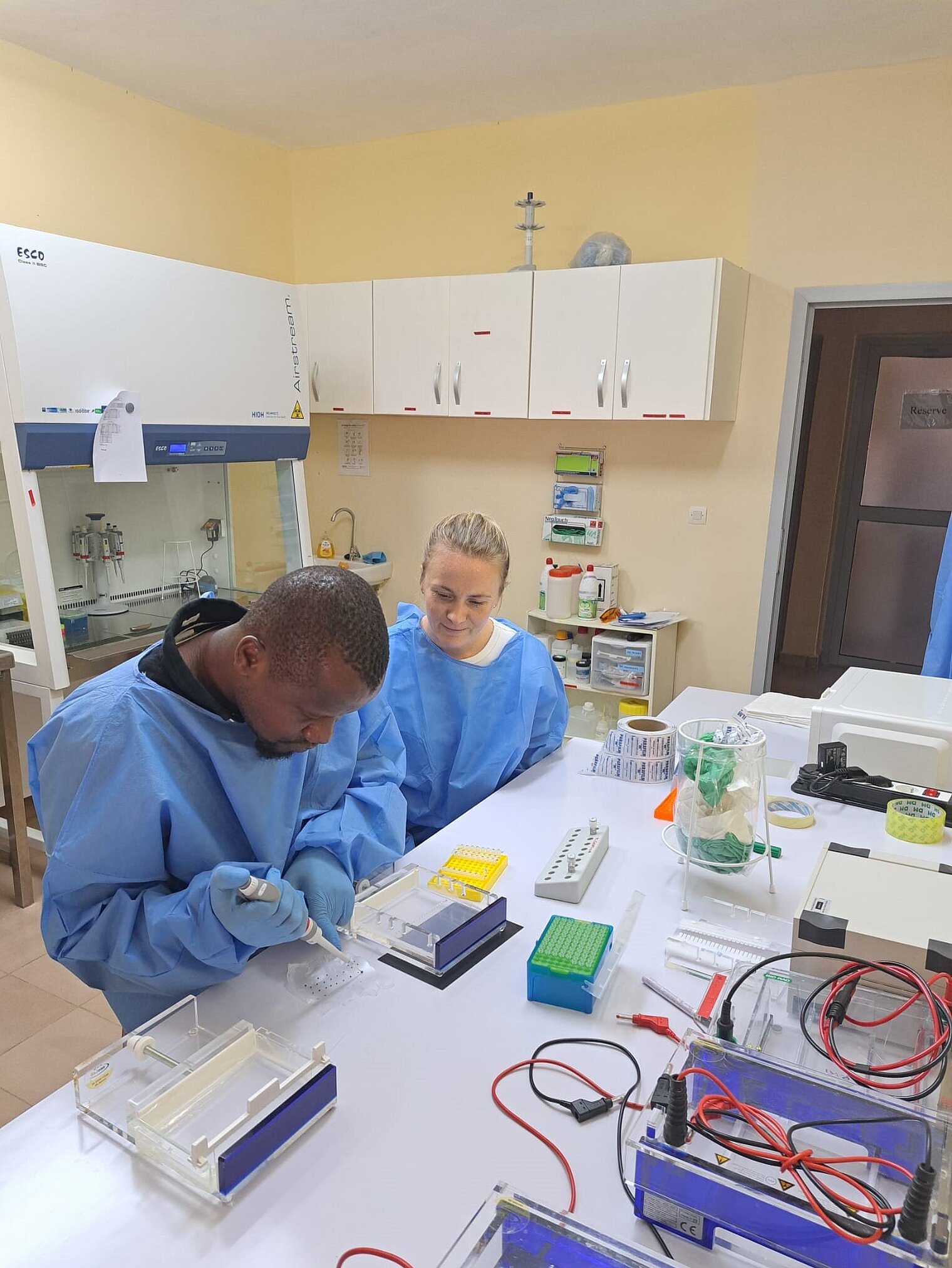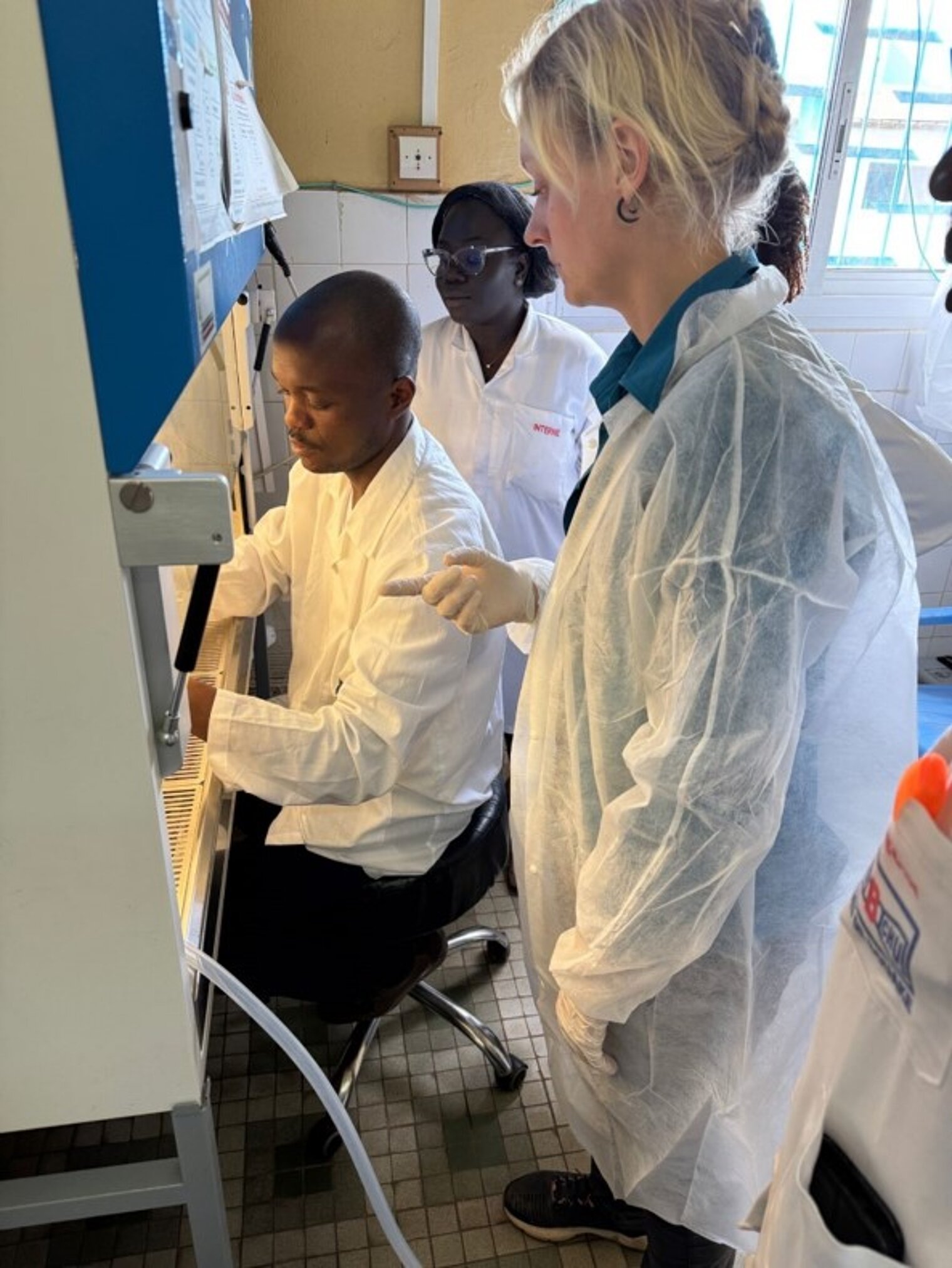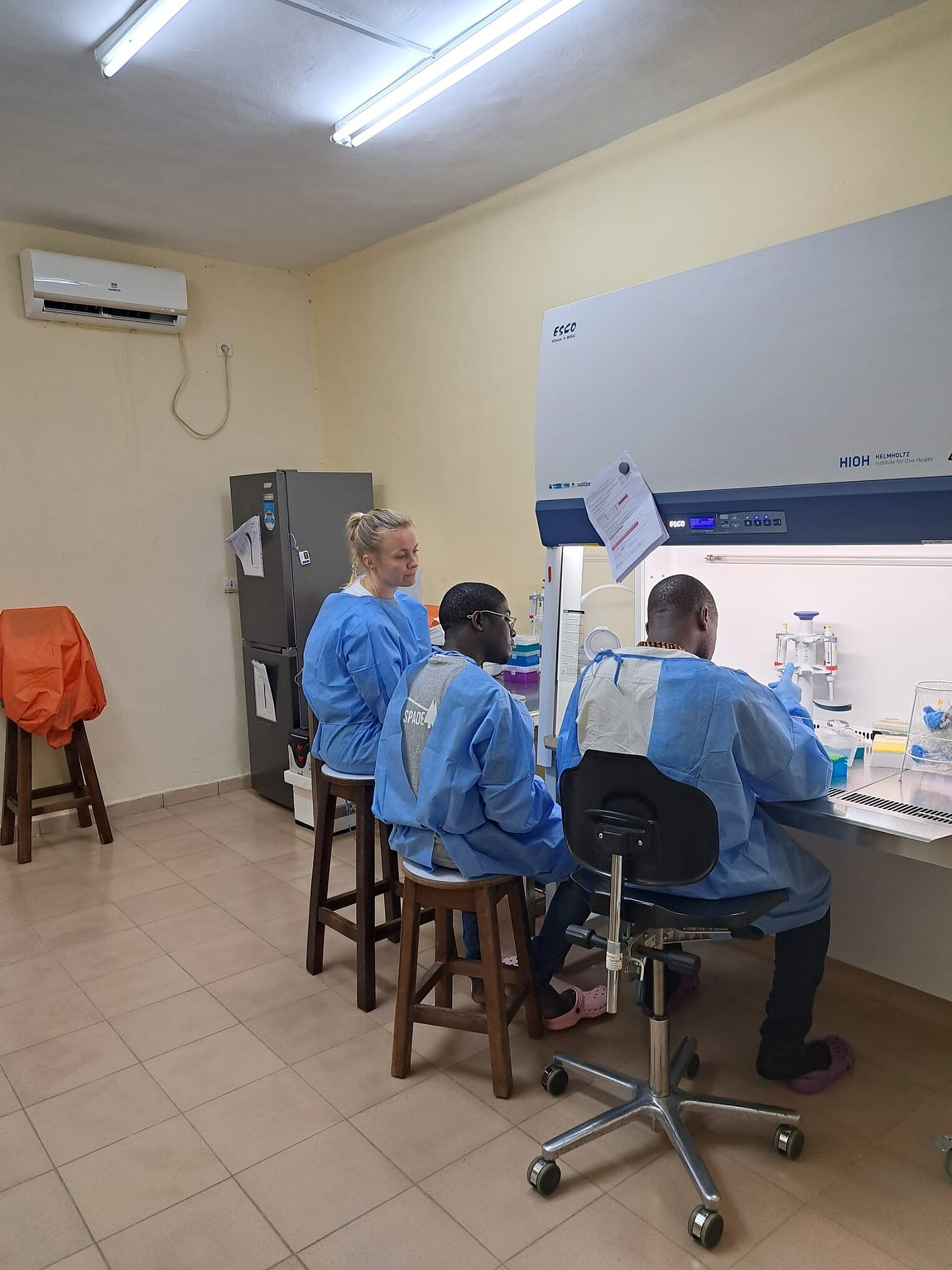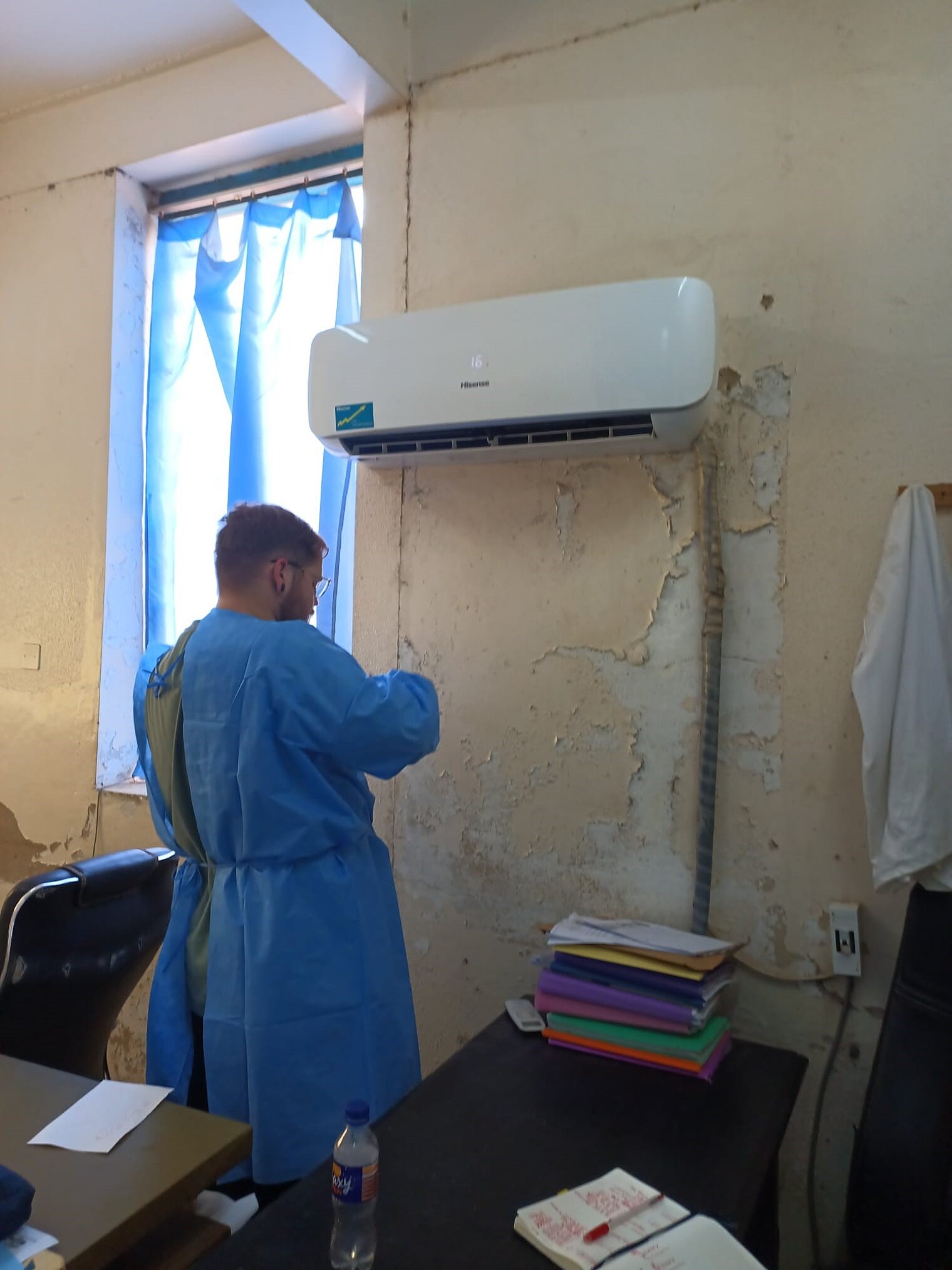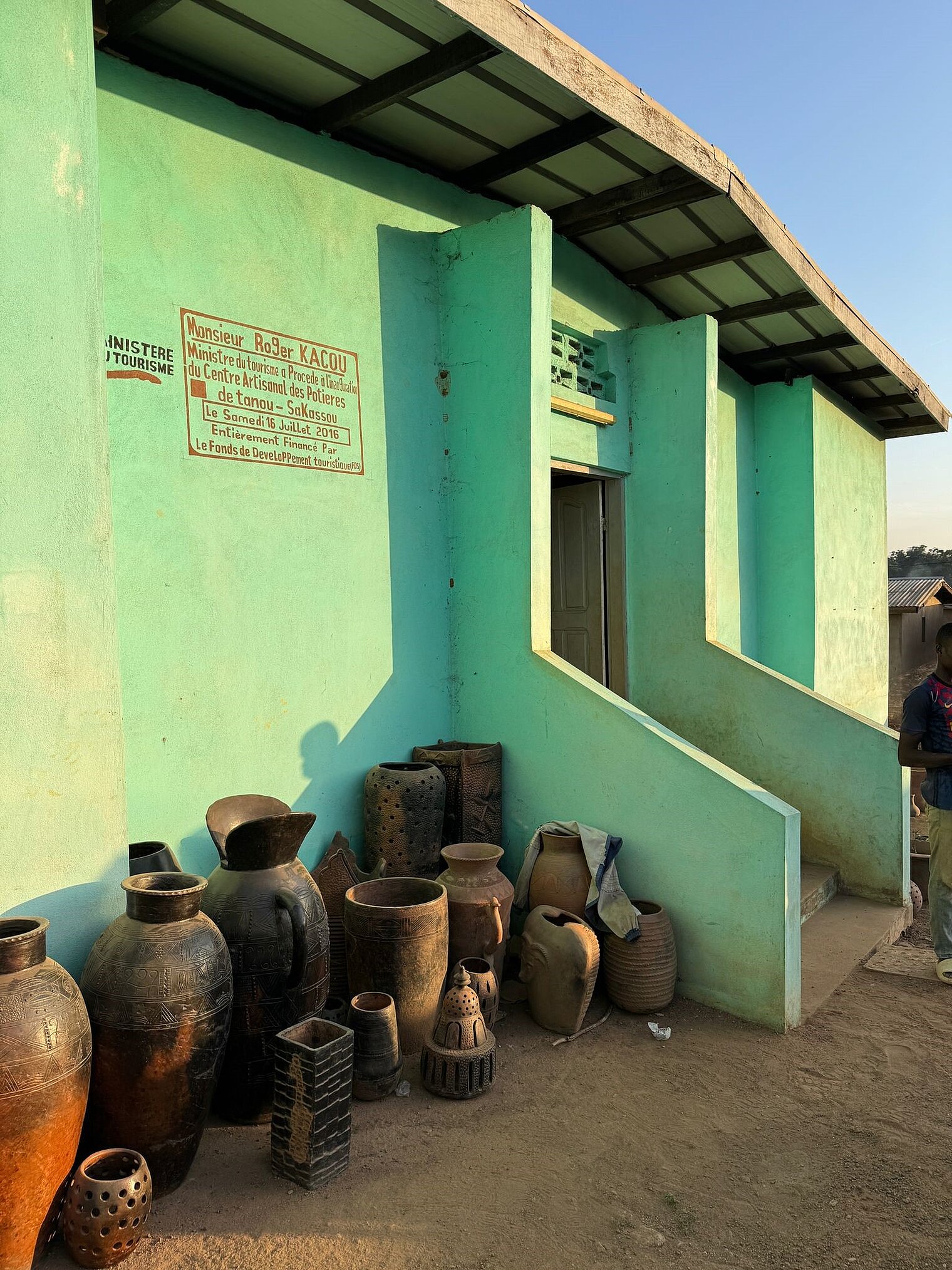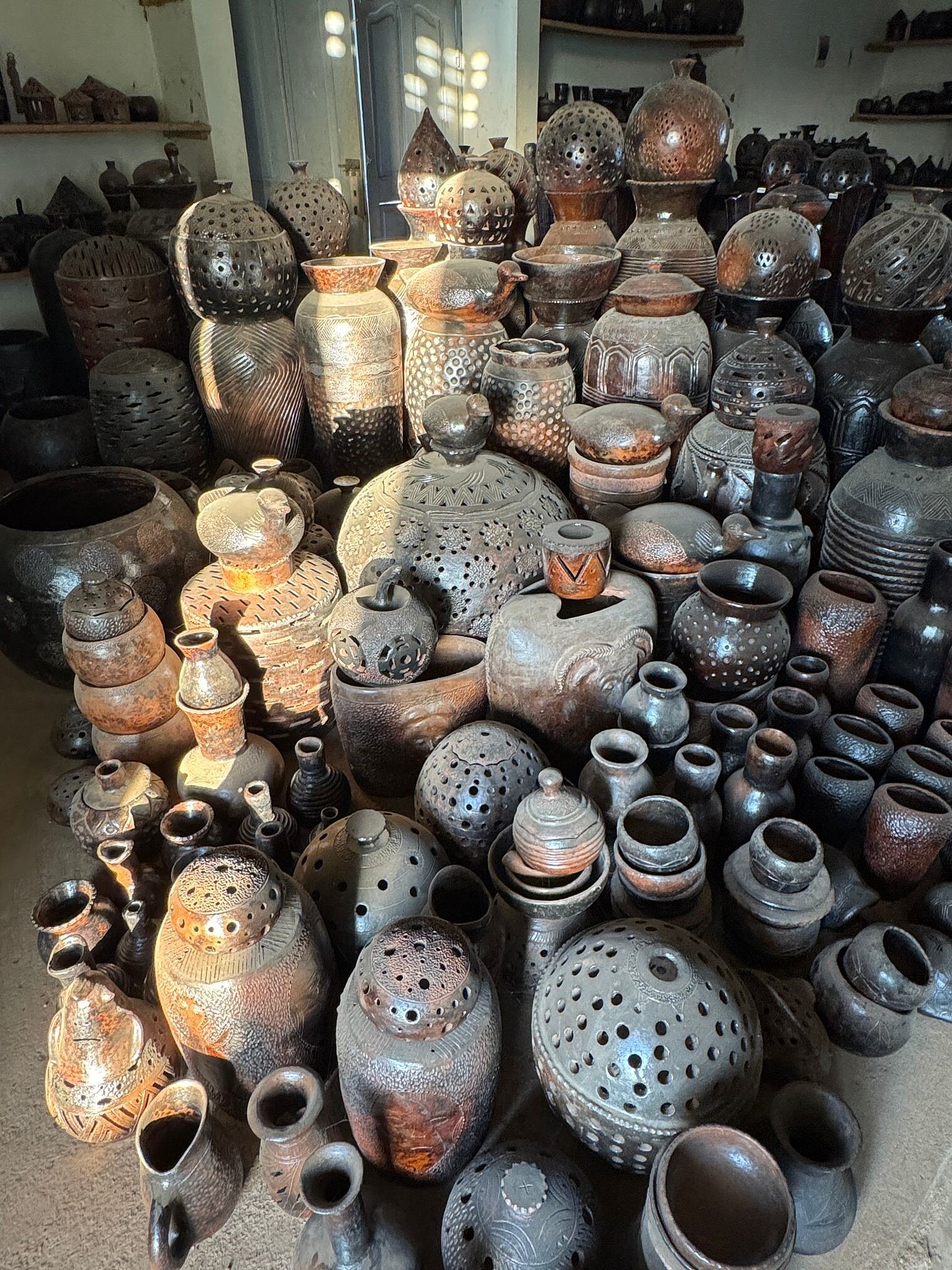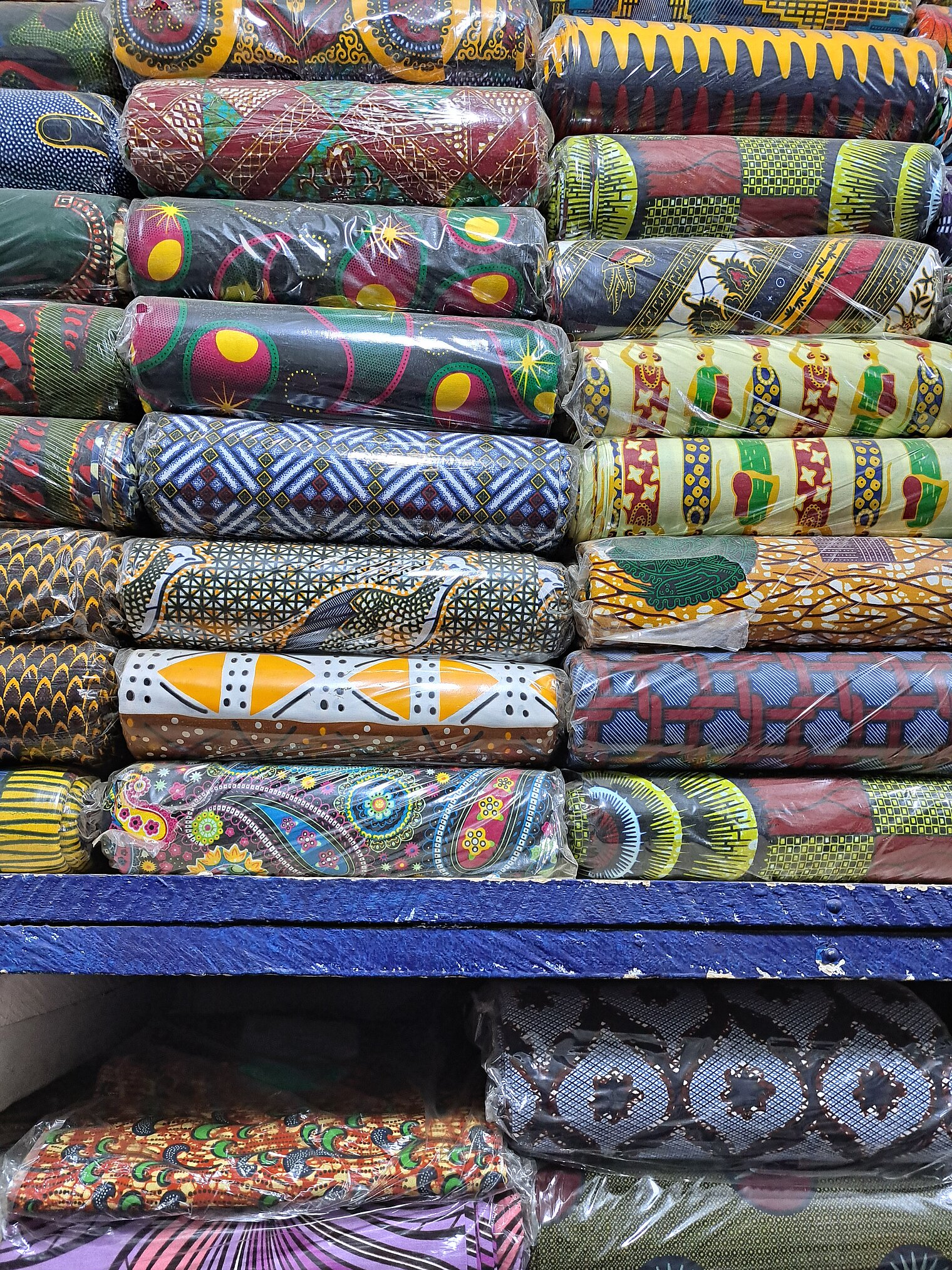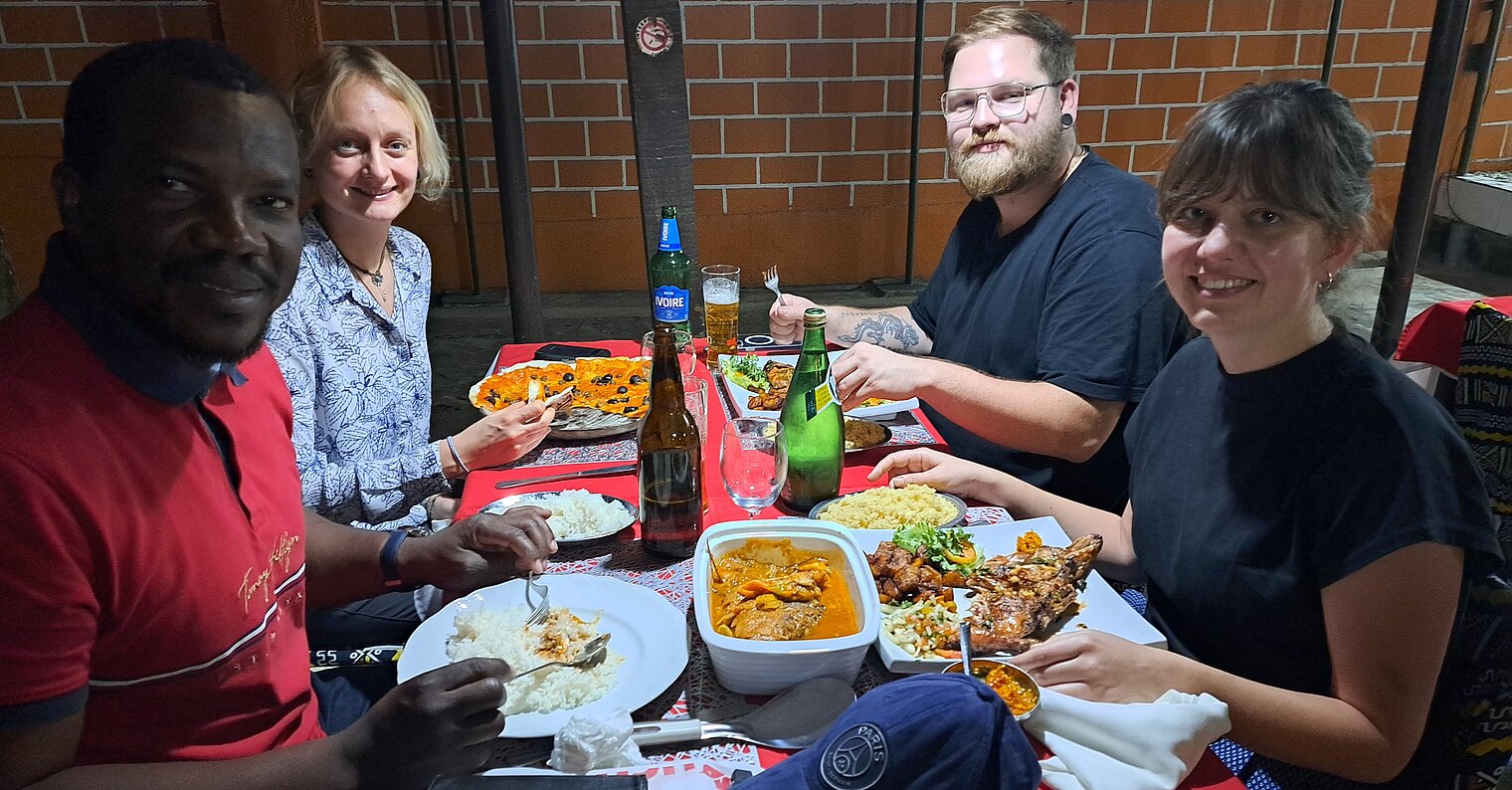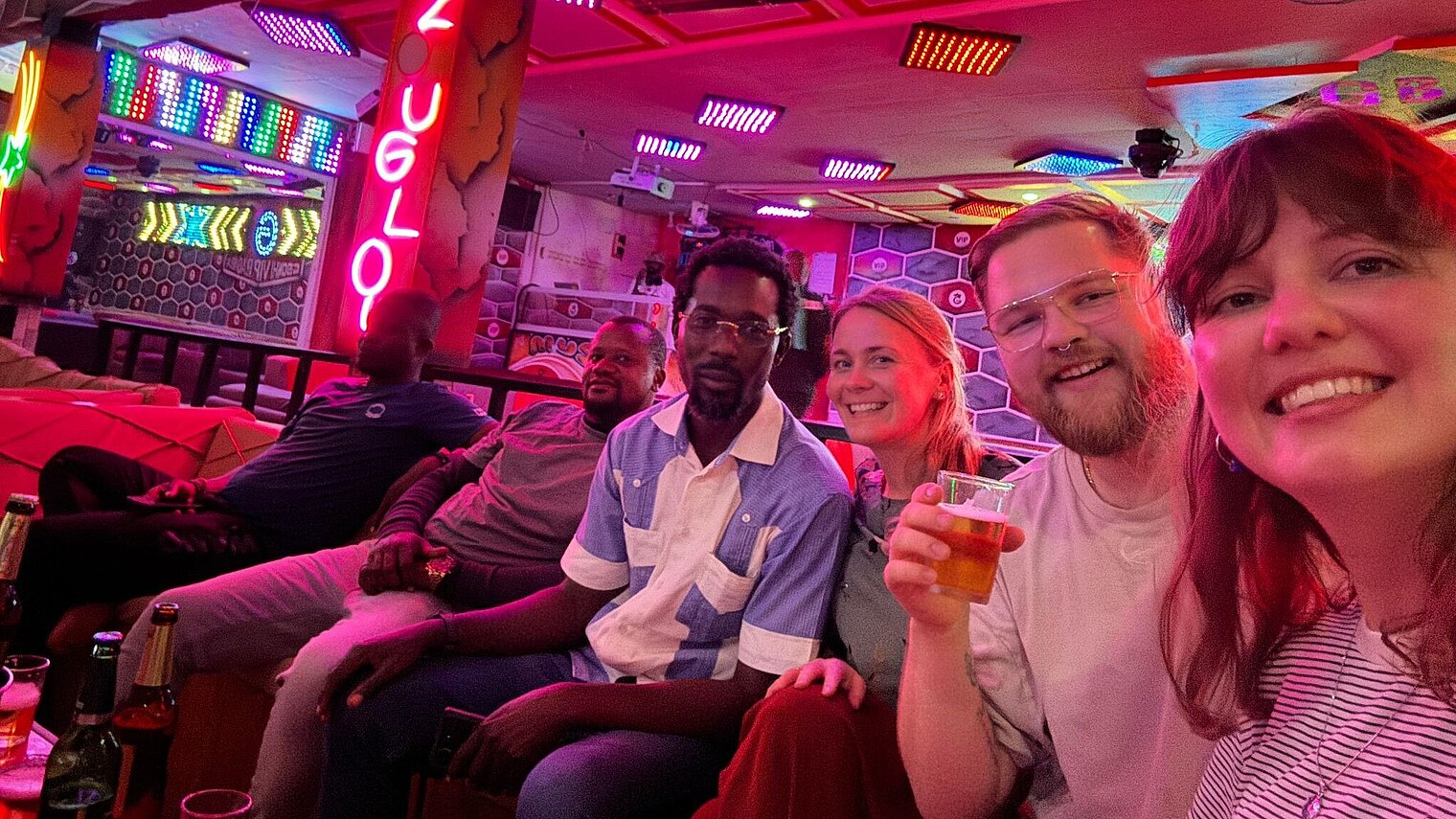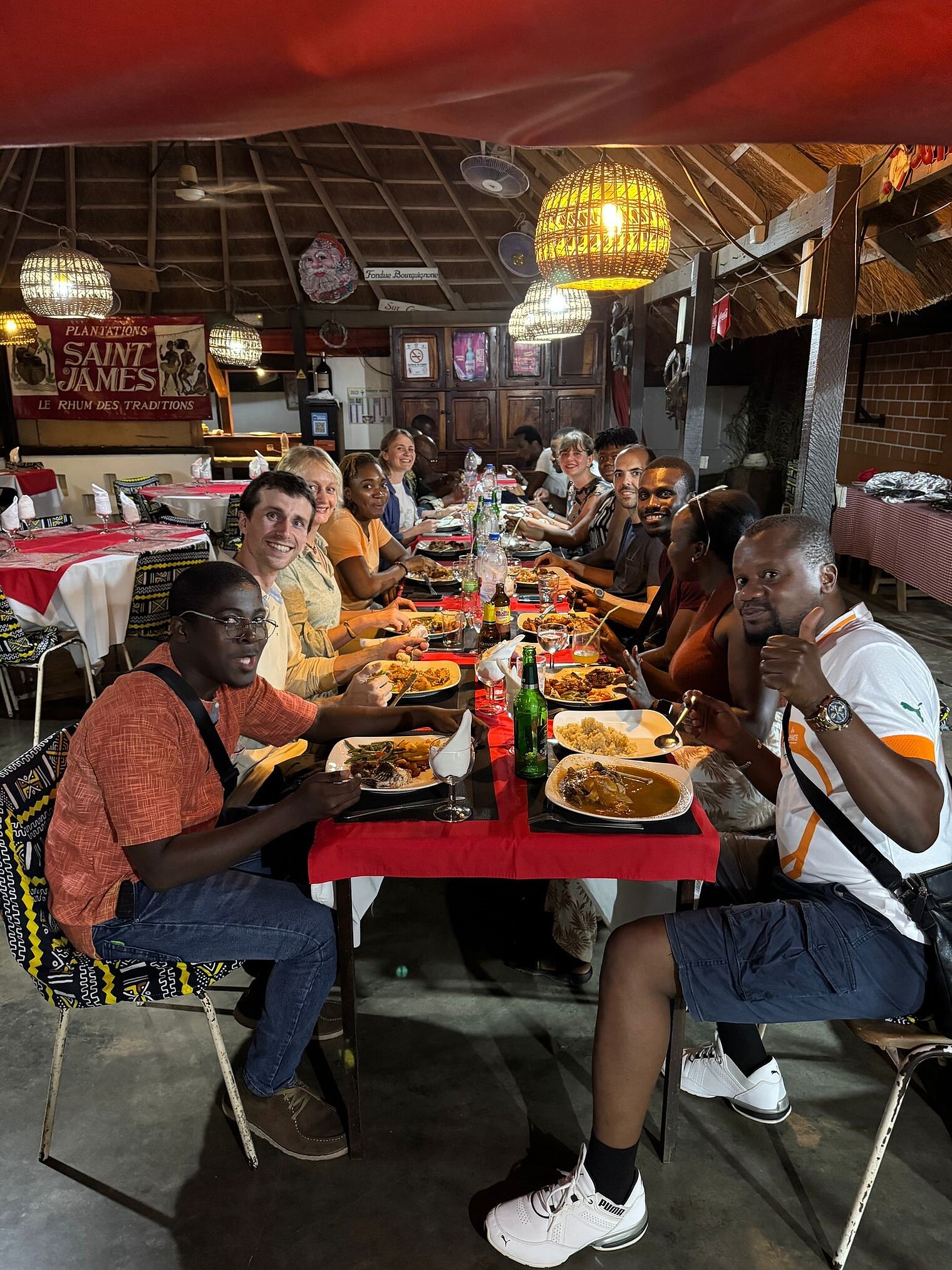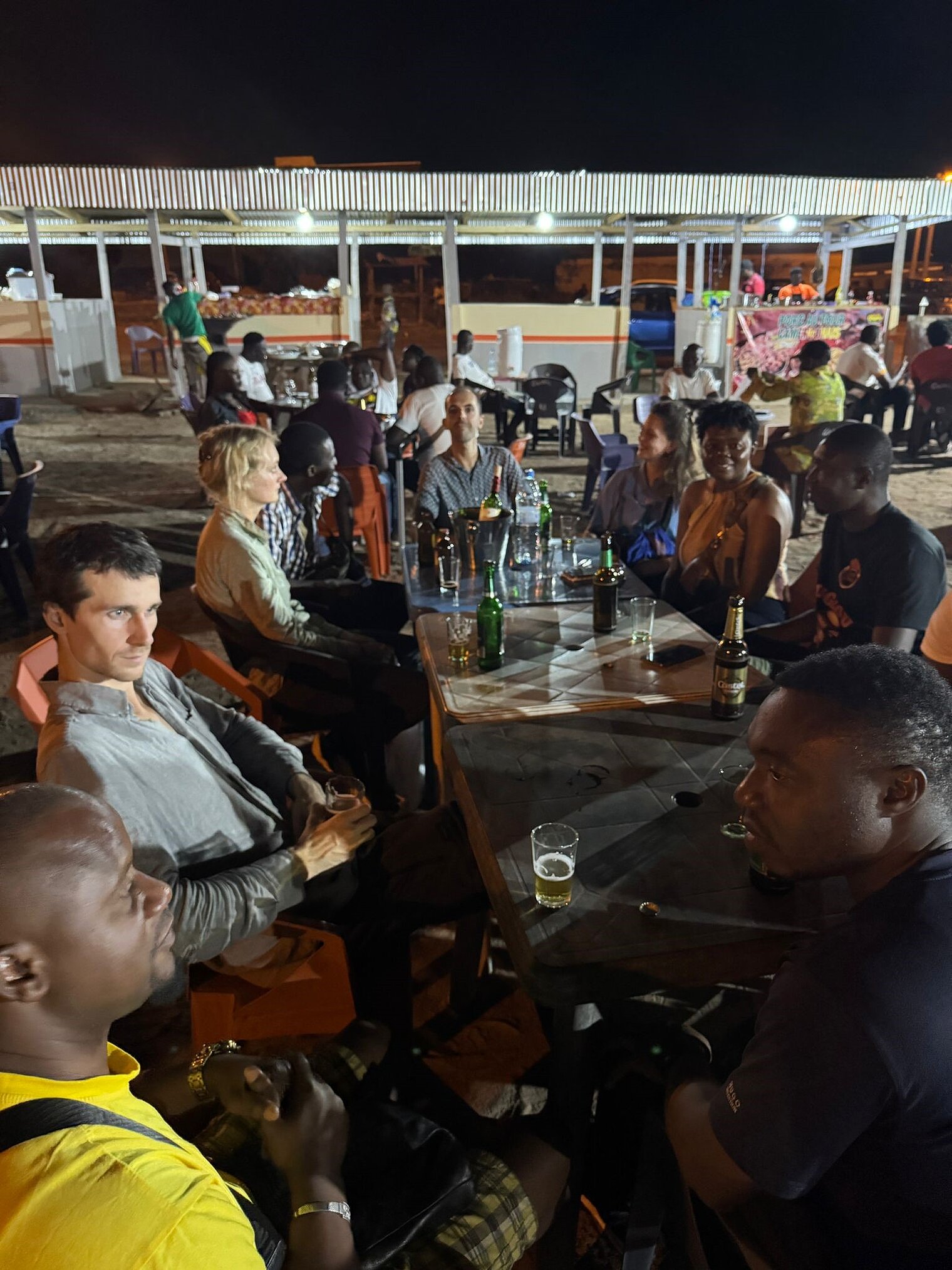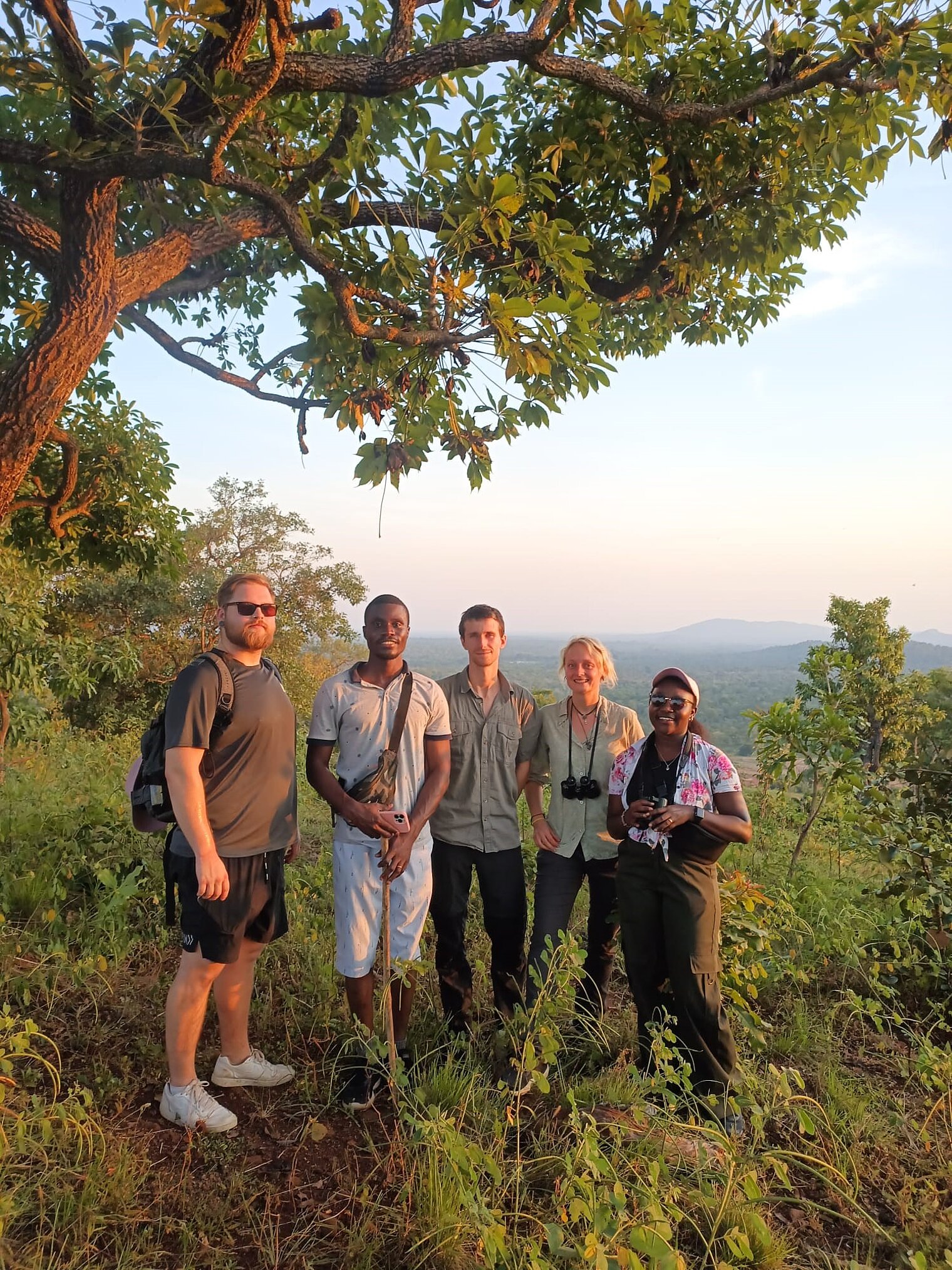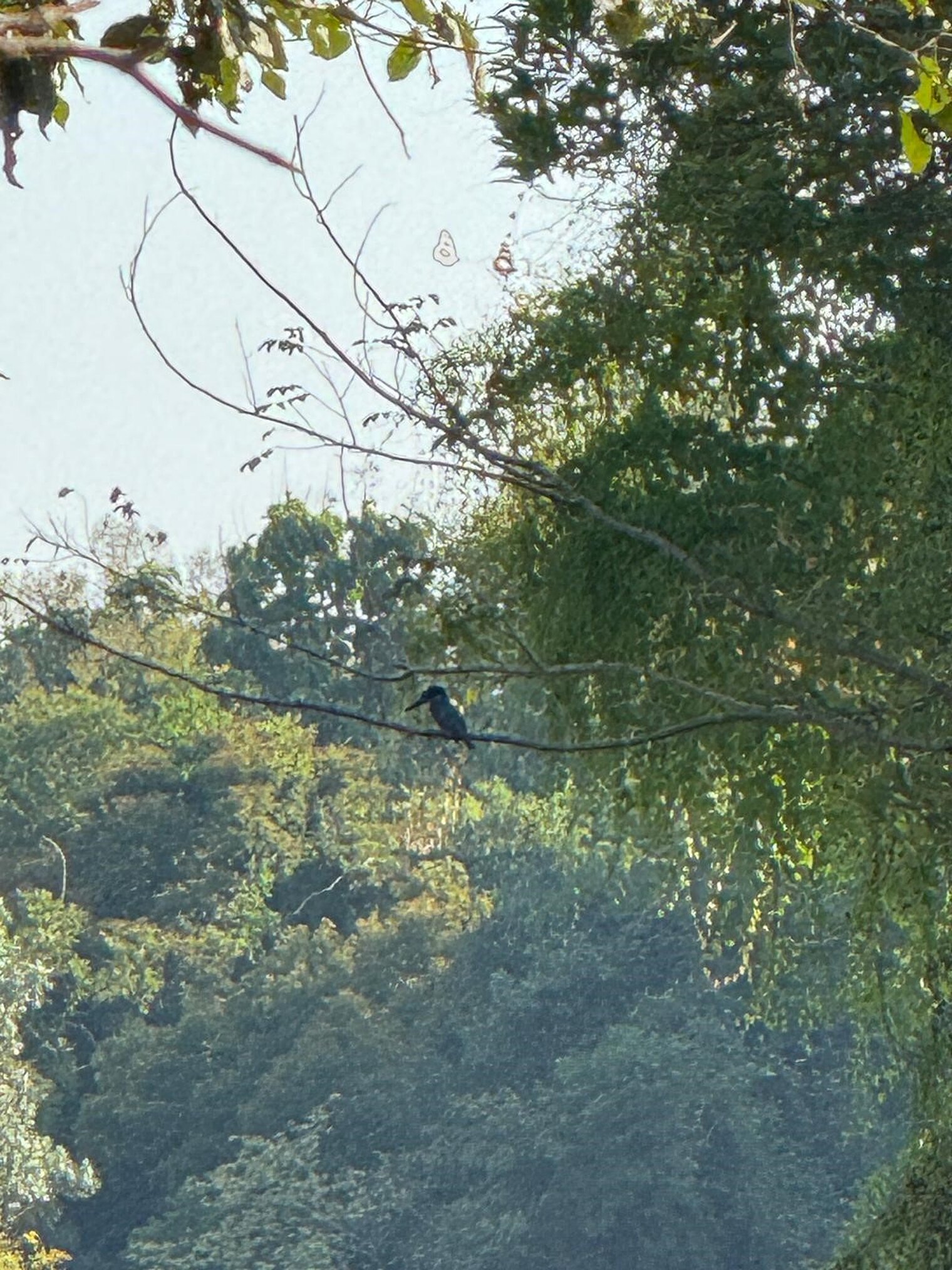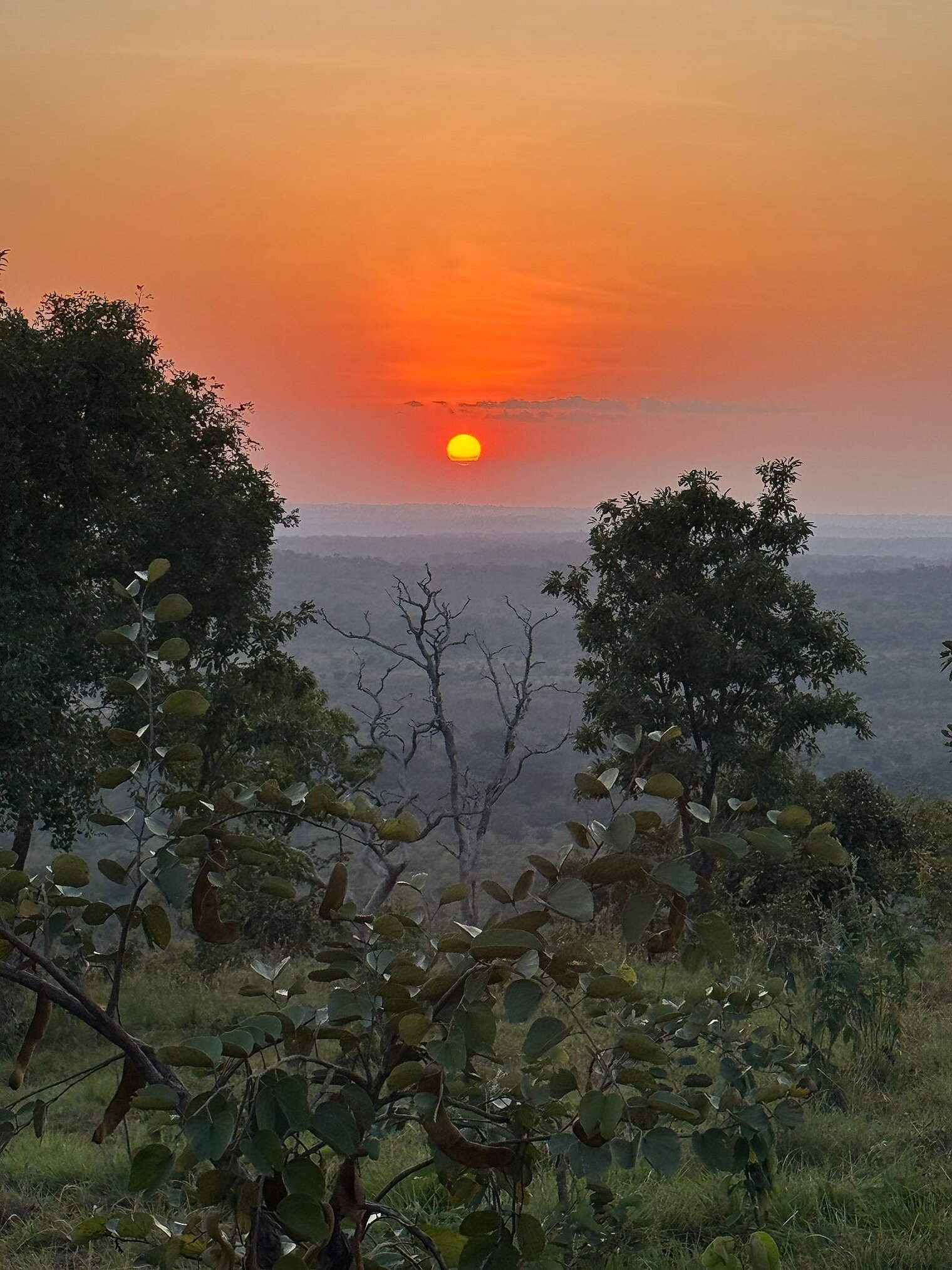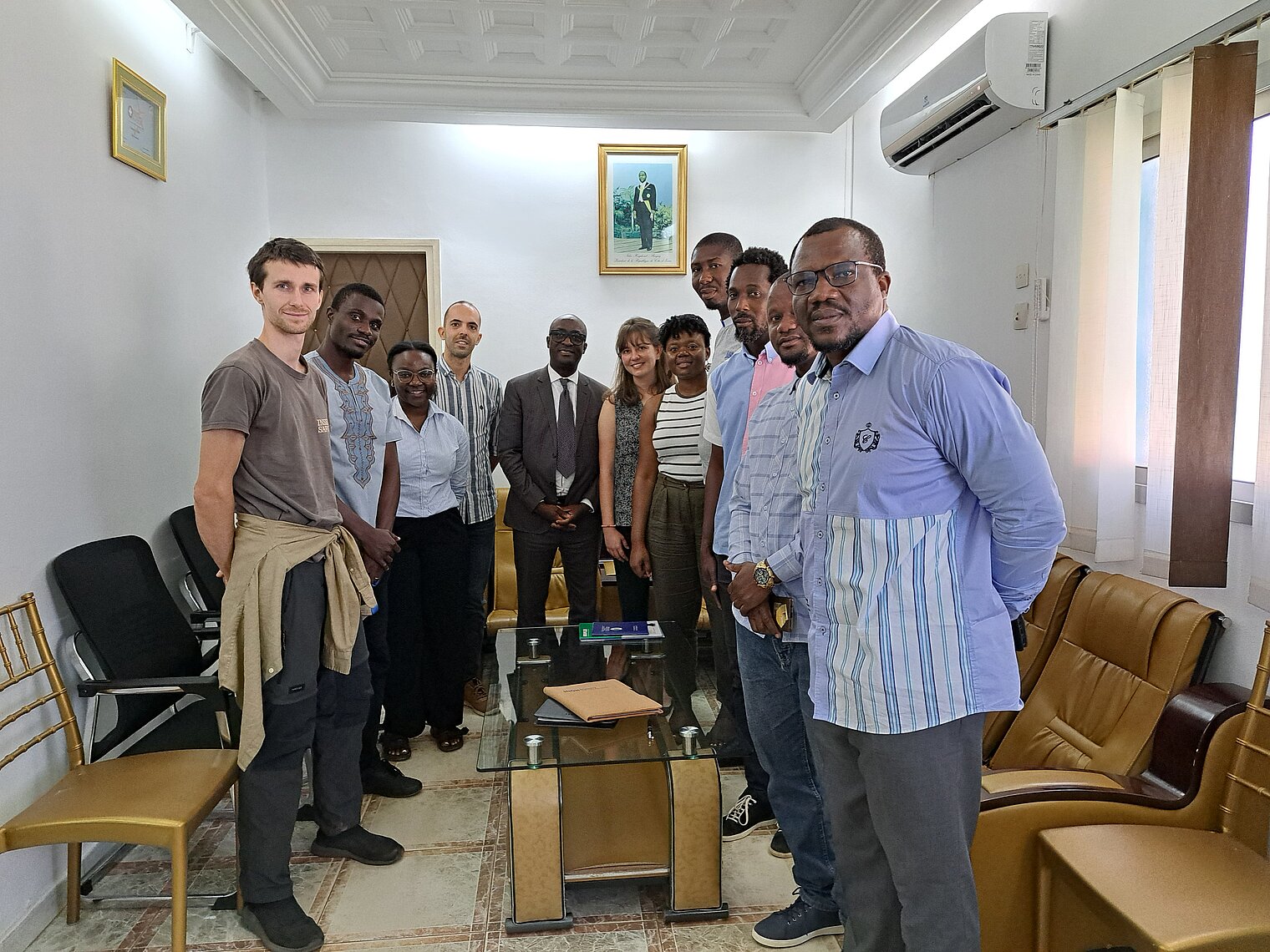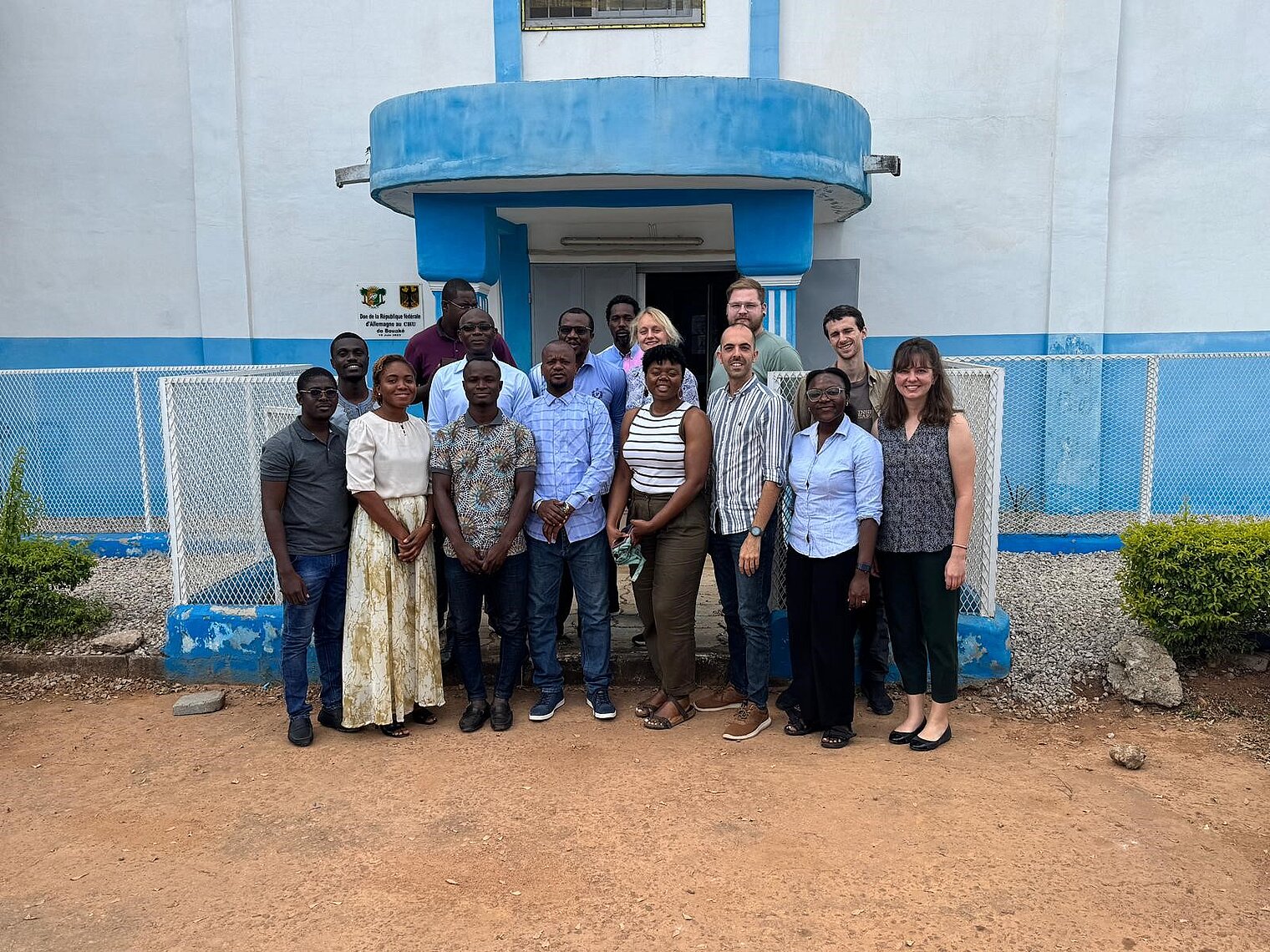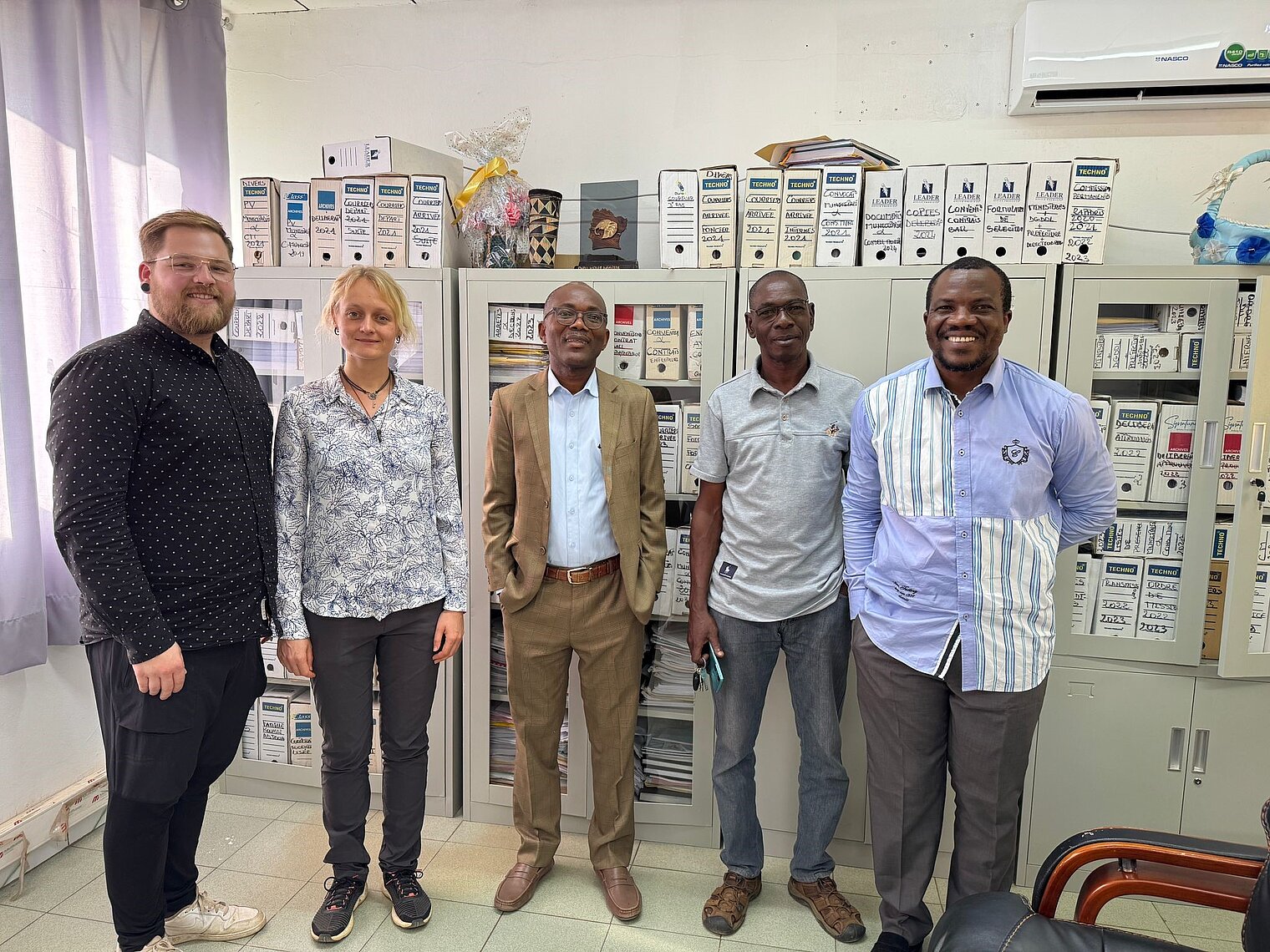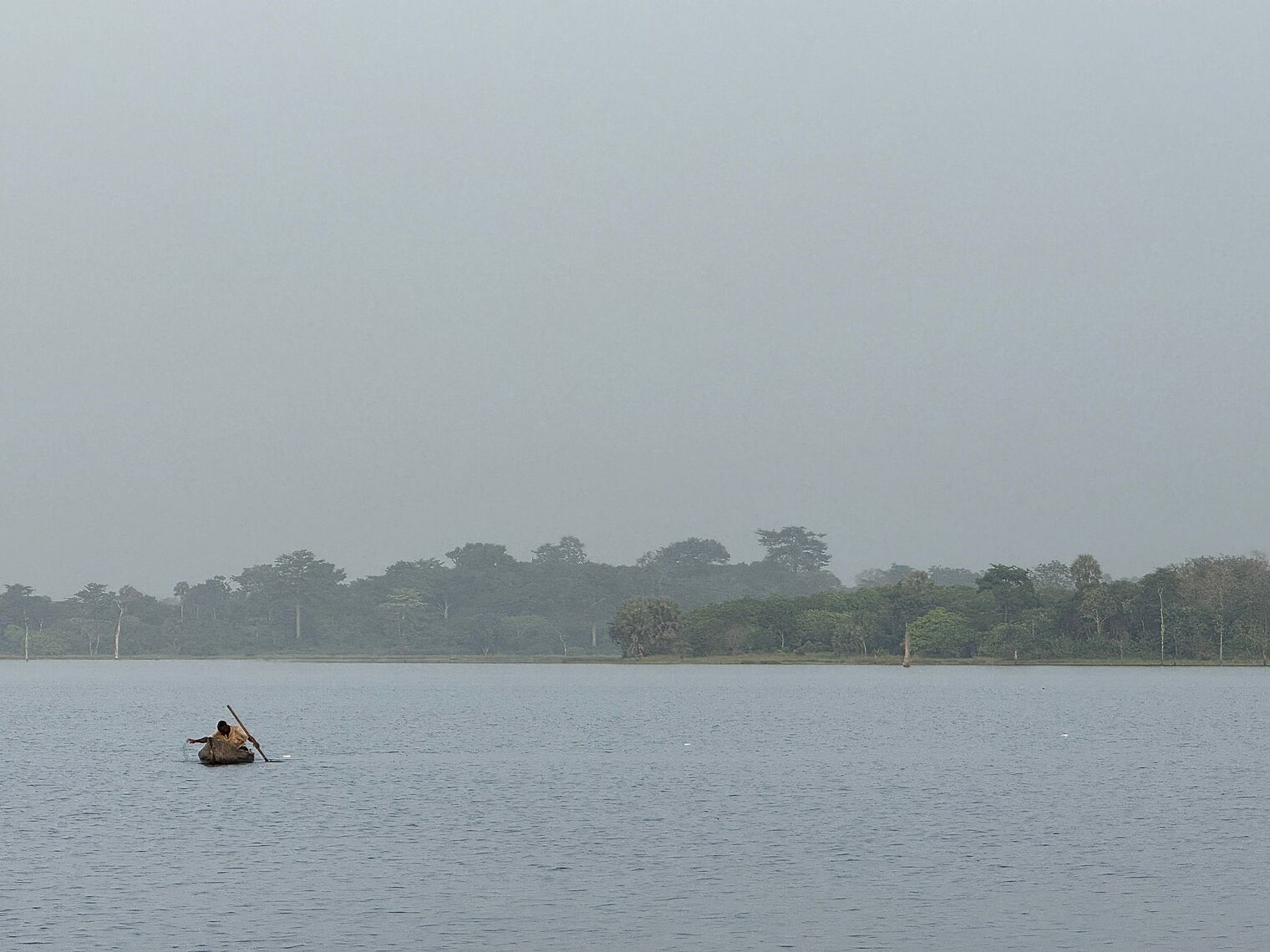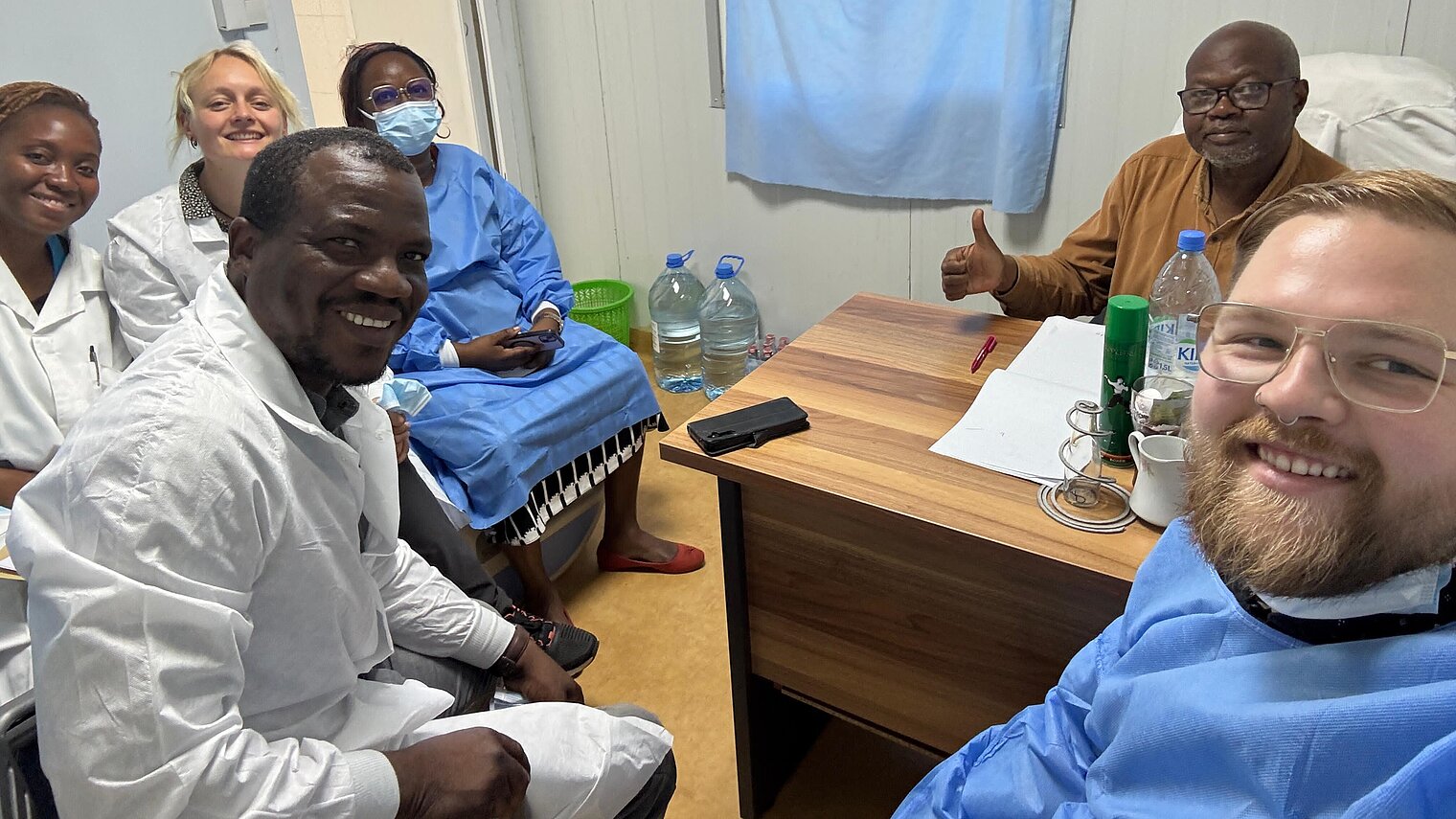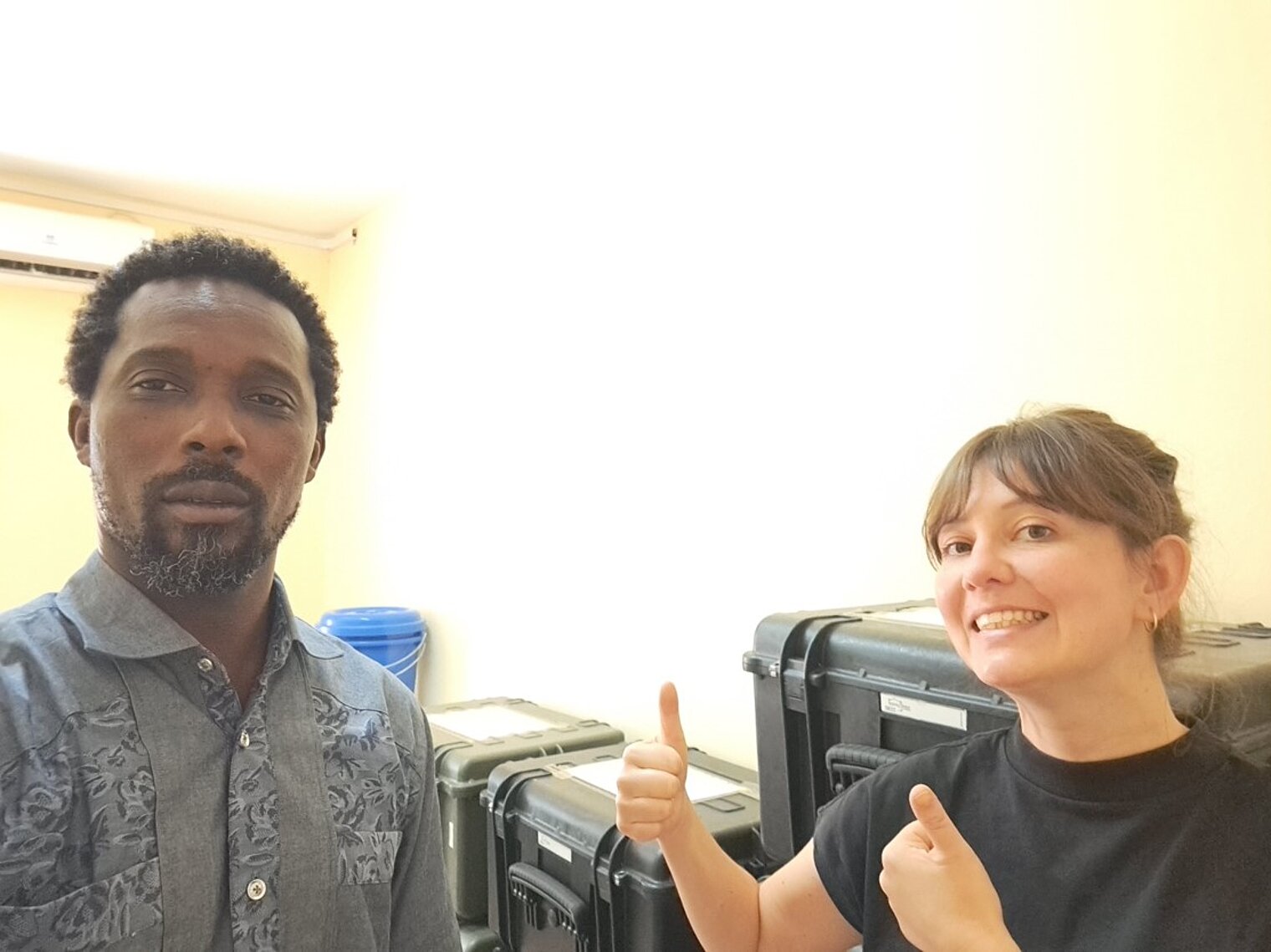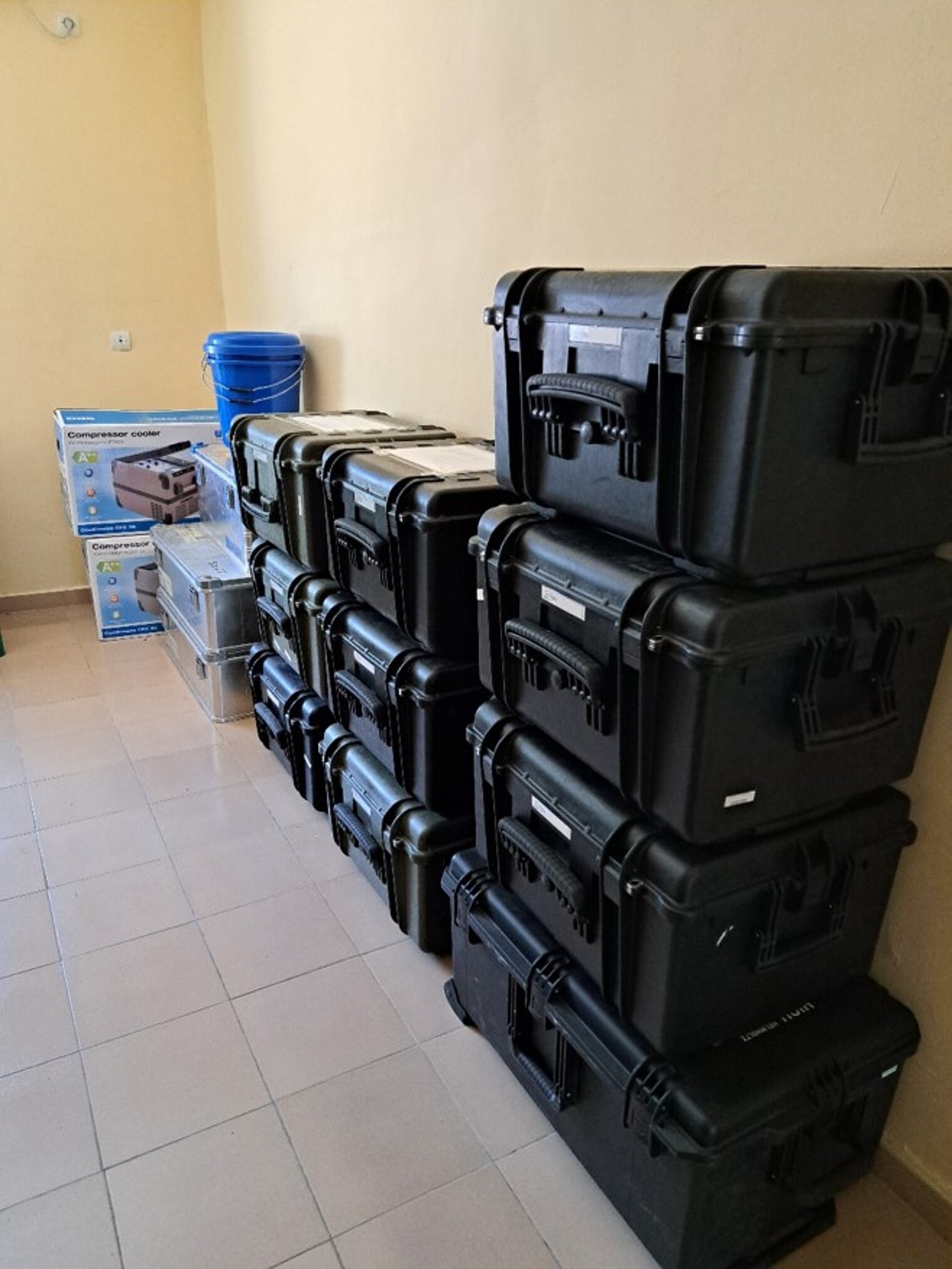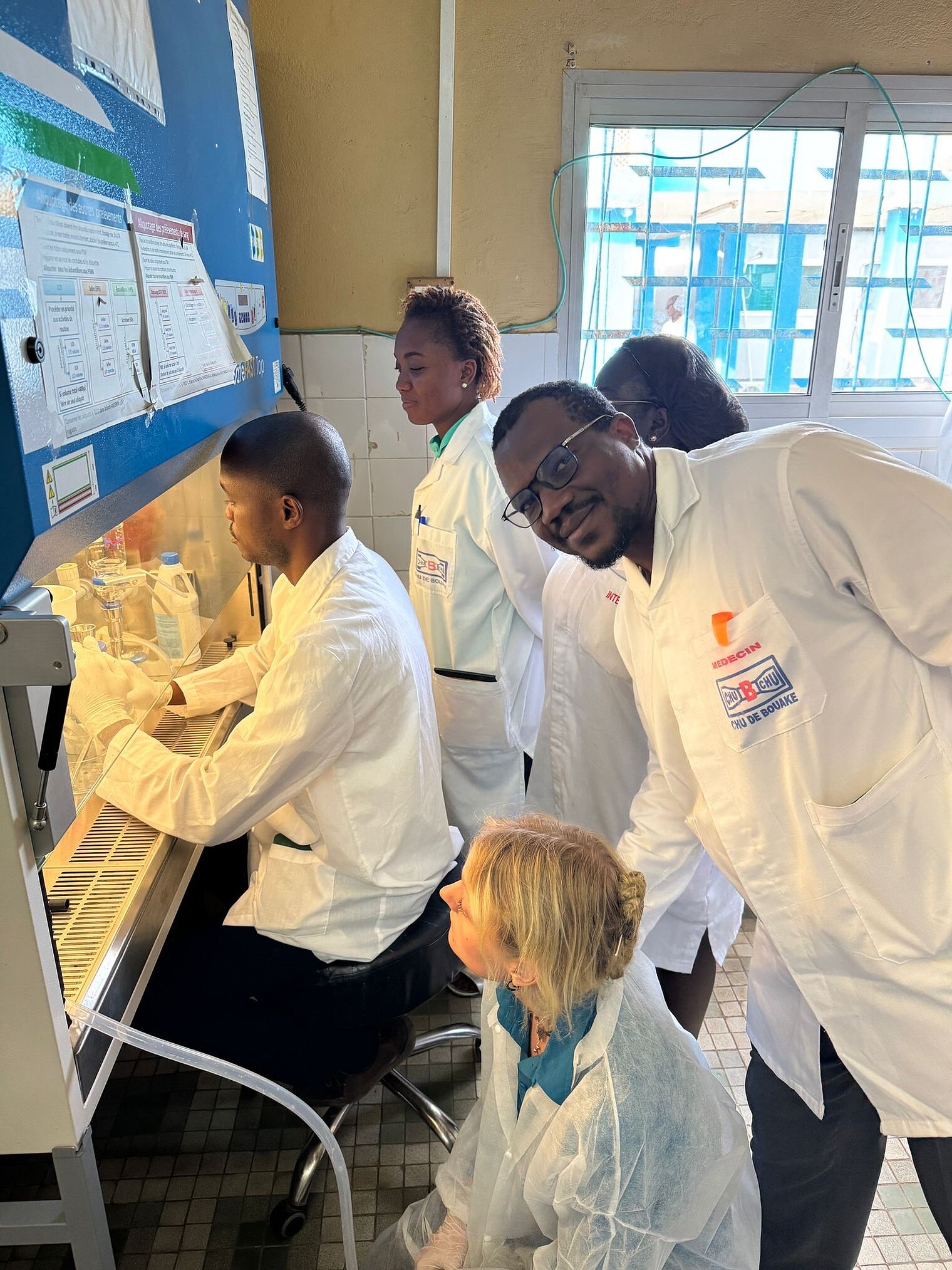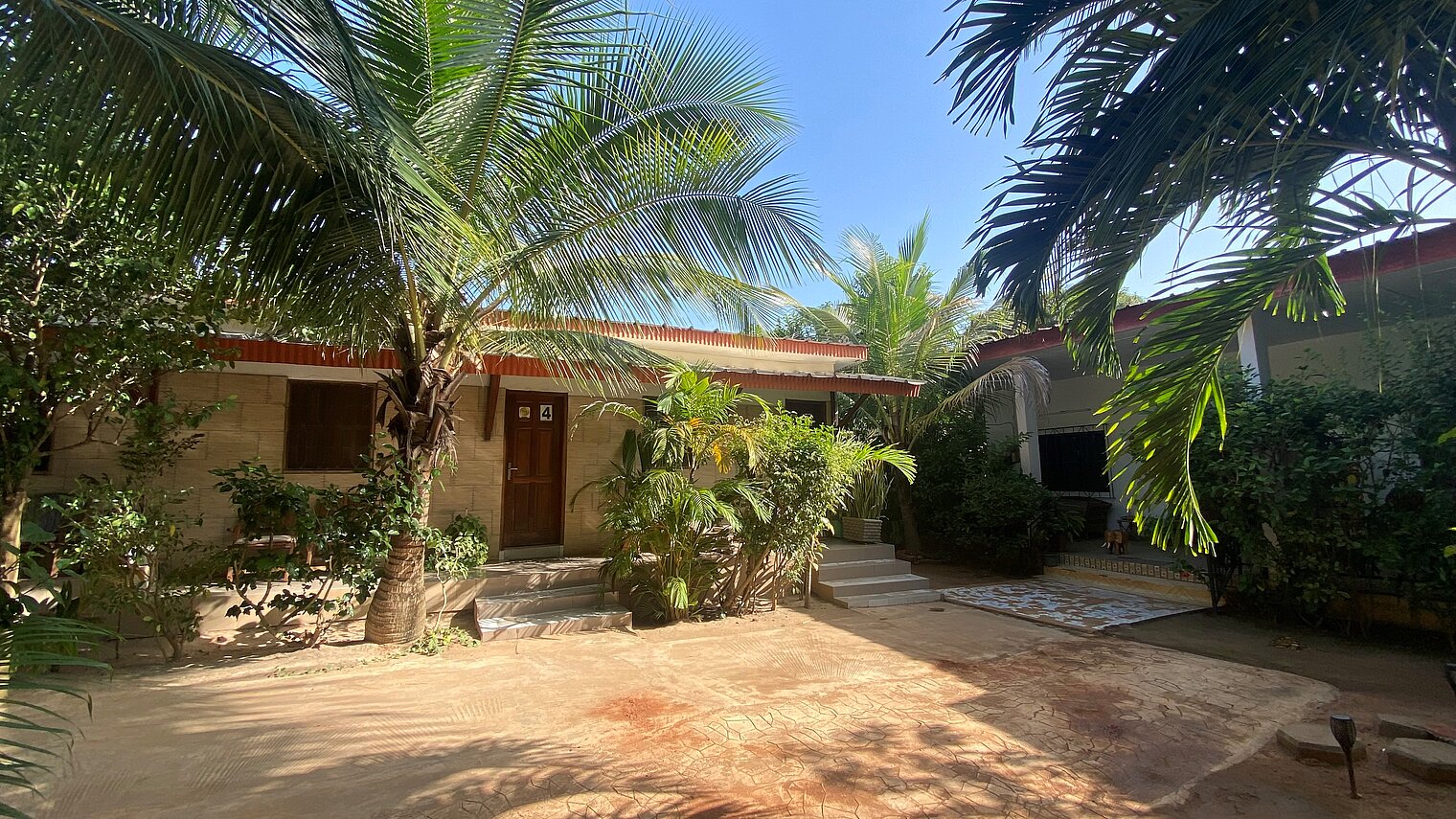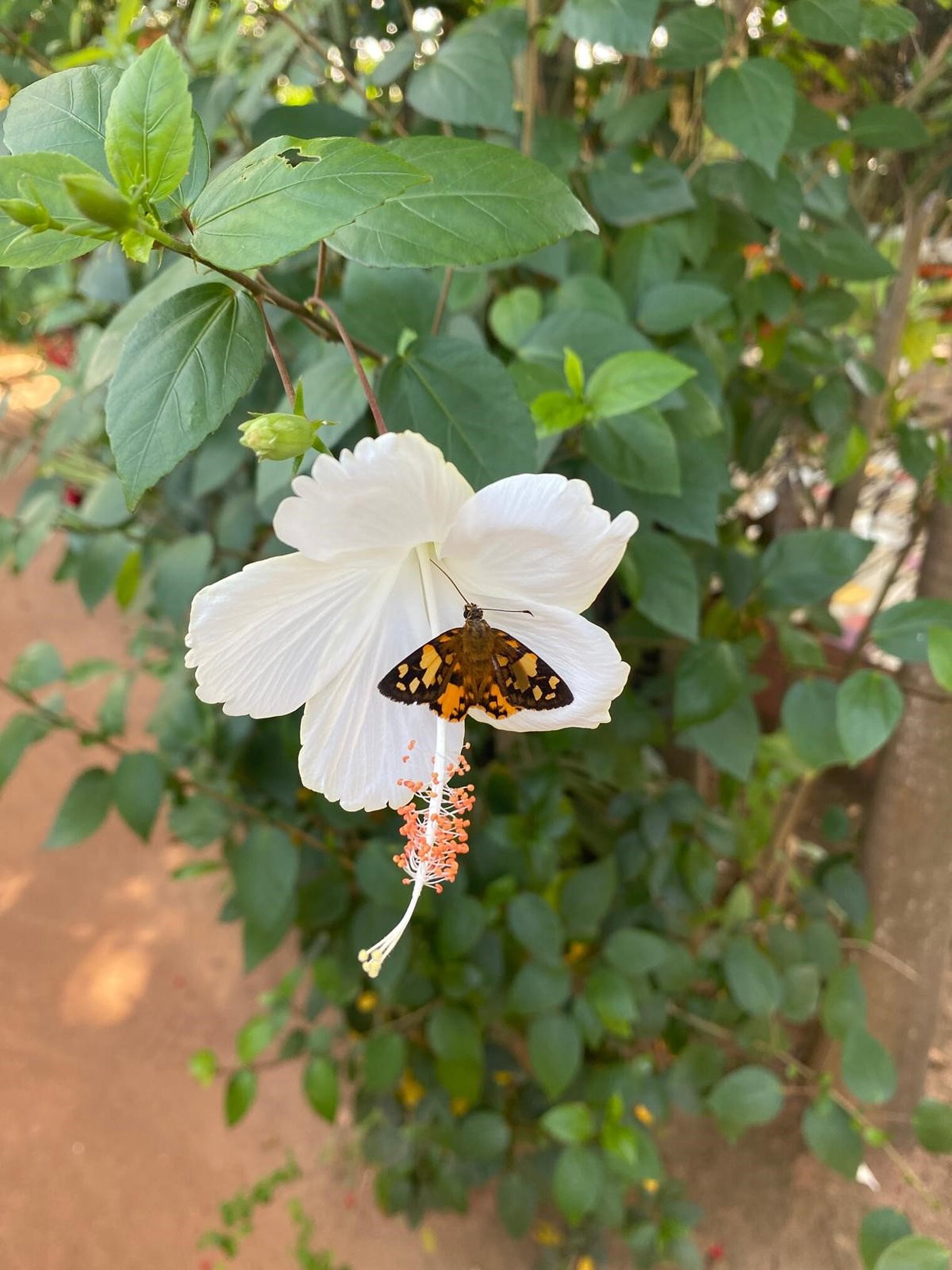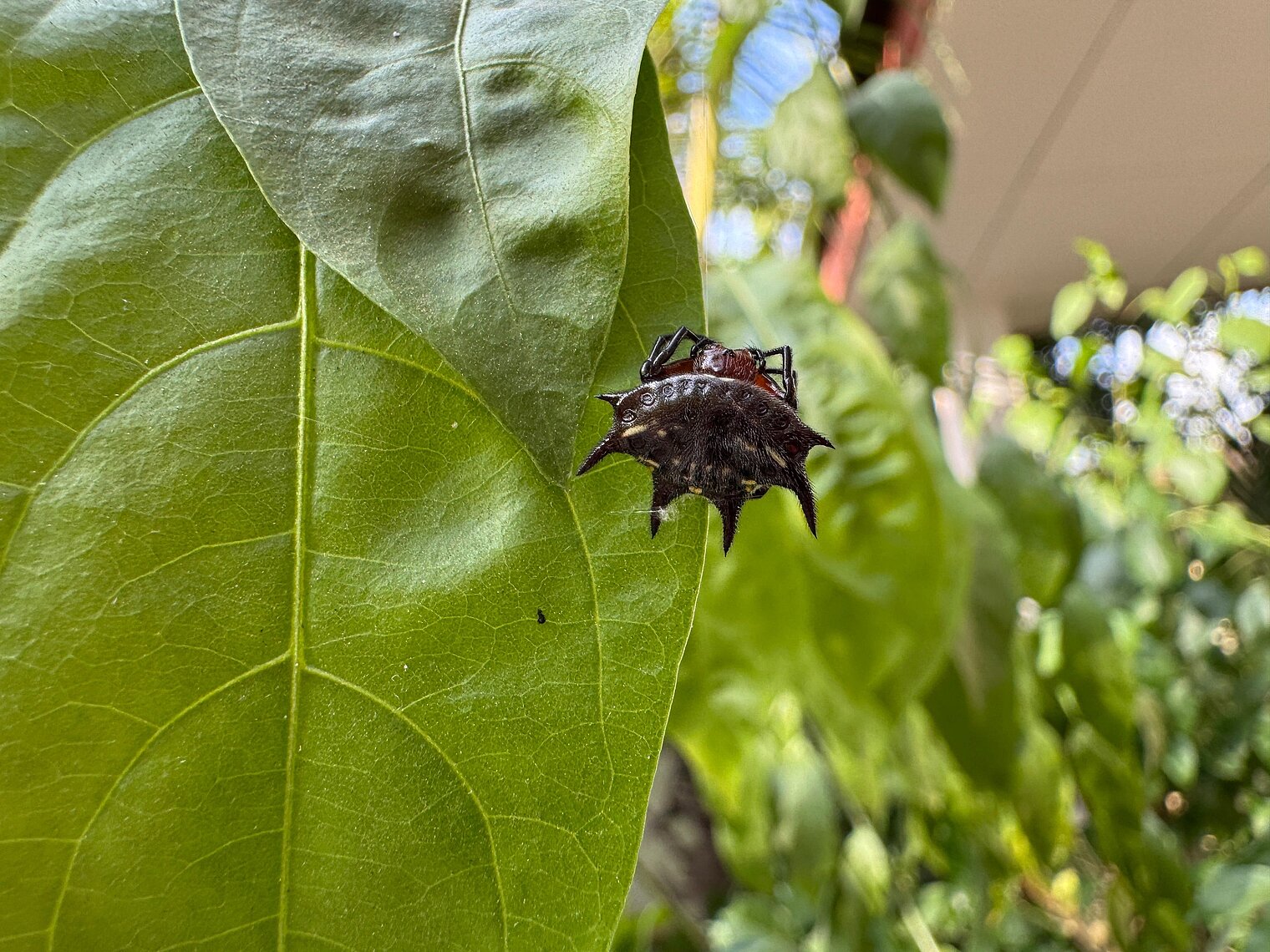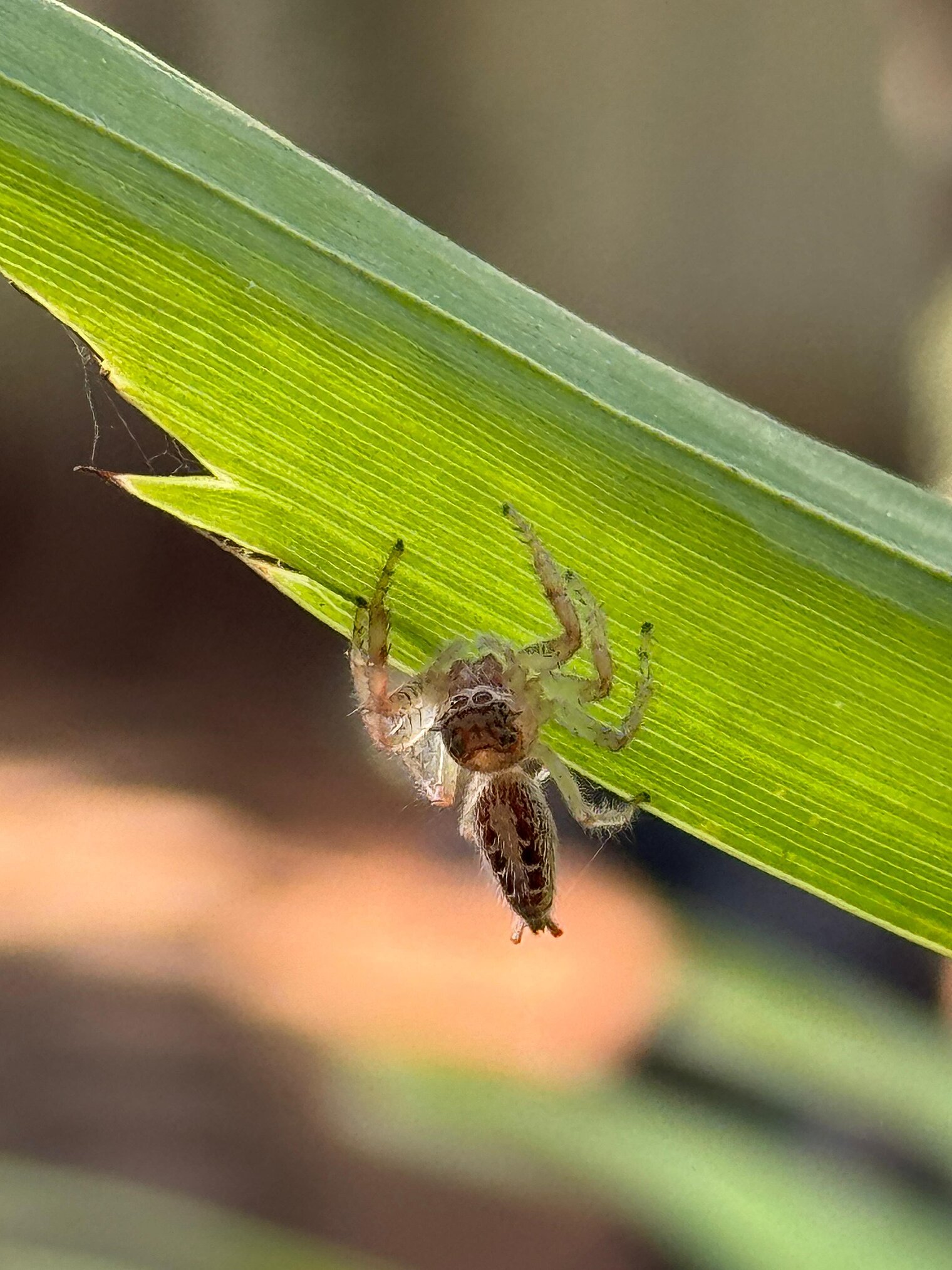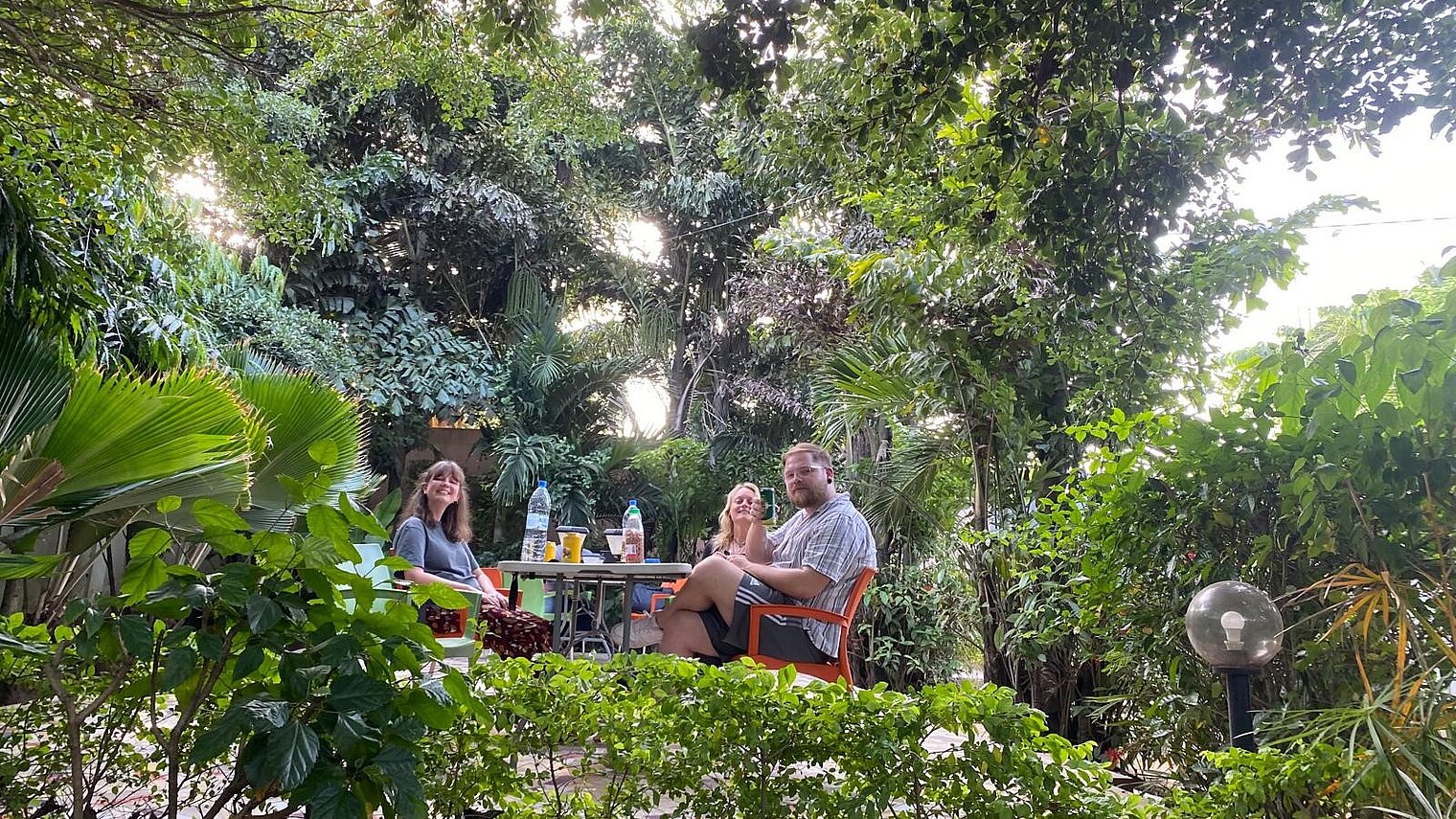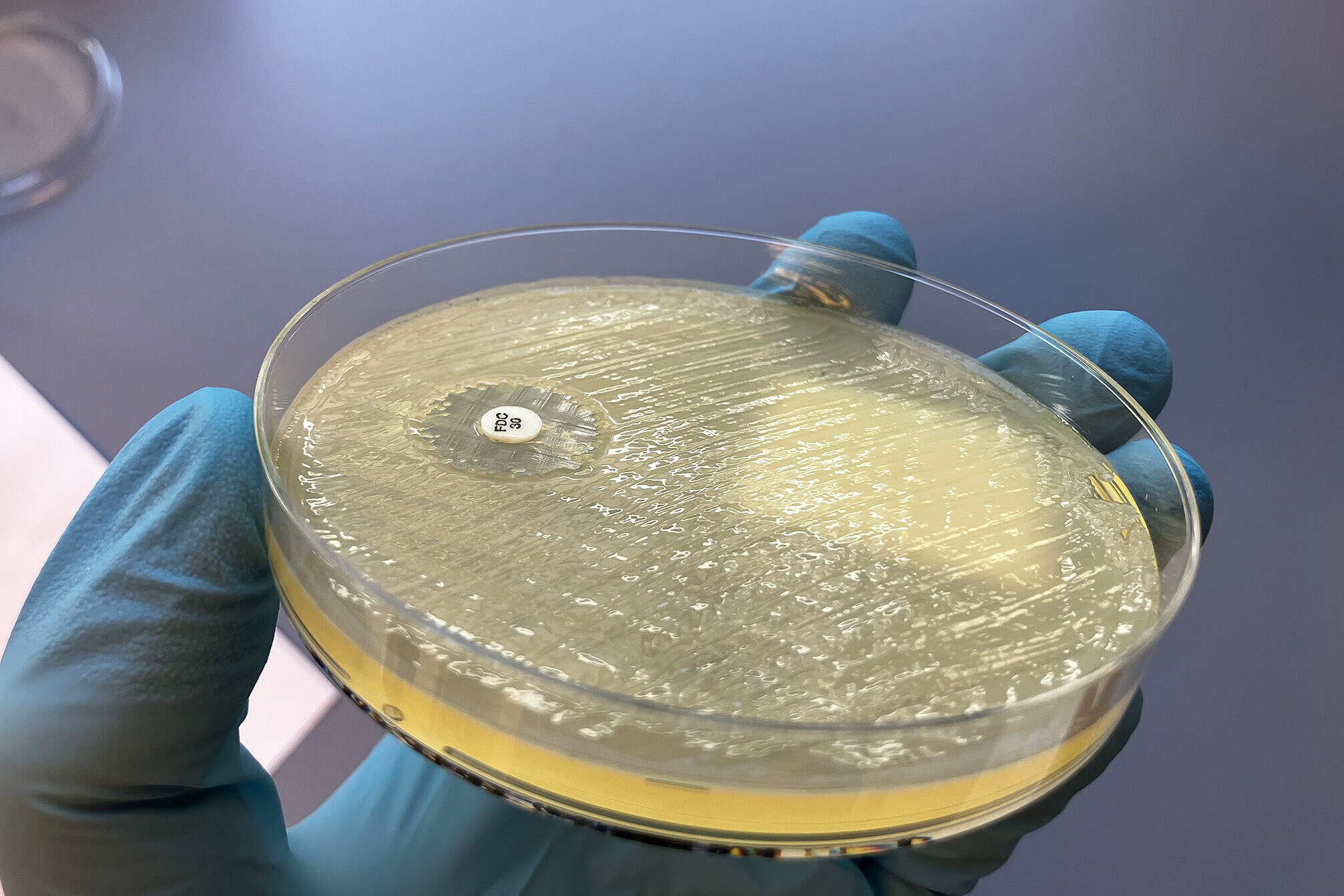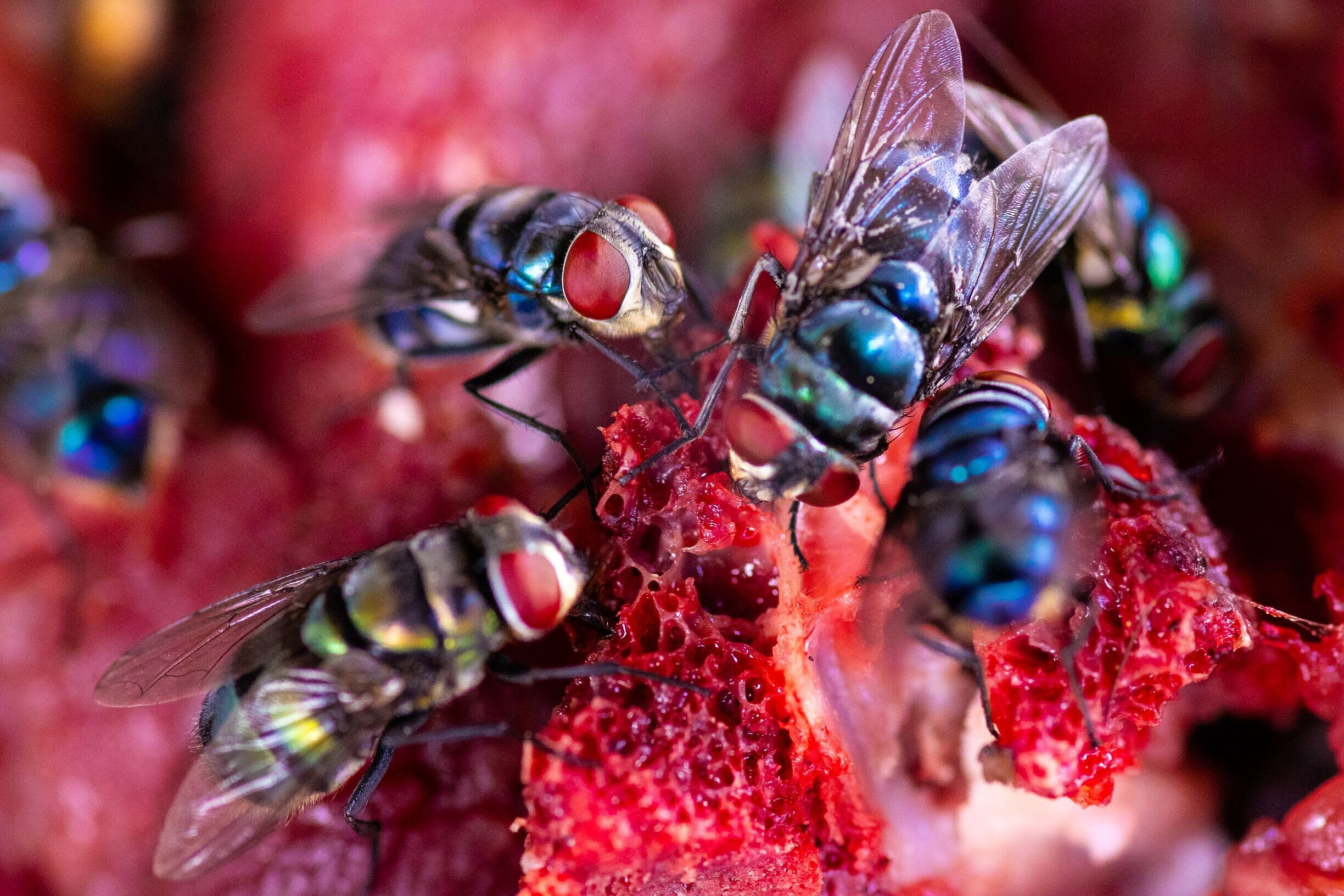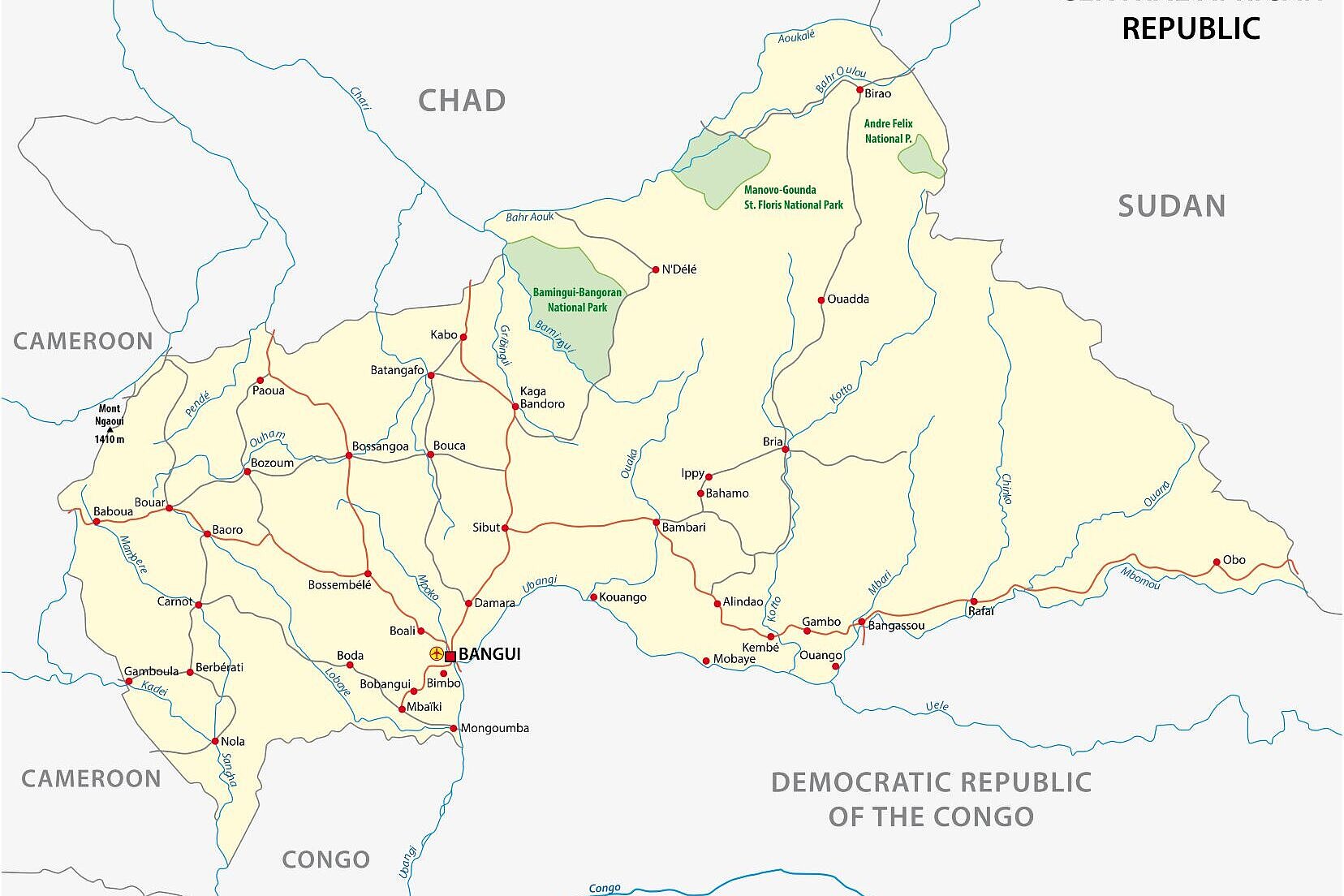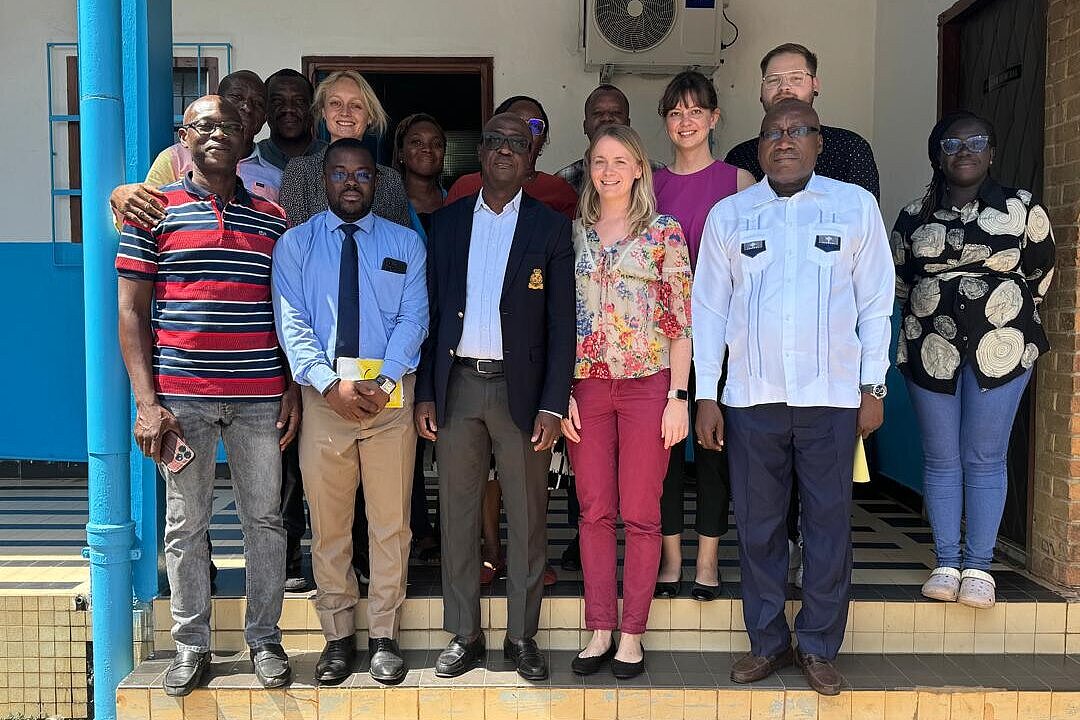
Jointly strengthening diagnostics: a Mission to Bouaké, Côte d'Ivoire, in November 2024
• When: 03 to 23 November, 2024 (3 weeks)
• Where: Bouaké, Côte d'Ivoire
• Who: the HIOH departments One Health Surveillance (OHS), Pathogen Evolution, Epidemiology and Ecology of Antimicrobial Resistance and the partner institutions Centre Hospitalier et Universitaire de Bouaké (CHUB), Robert Koch Institute (RKI) and Université Alassane Ouattara de Bouaké
• Objective: Strengthening diagnostic capacities and intensifying cooperation with the CHUB University Hospital as part of the research projects PAcCI (Public Health Actions for Côte d'Ivoire) and InnoDia (Innovative Diagnostic Pipelines for One Health Surveillance, a seed grant project)
For this reason, the Helmholtz Institute for One Health (HIOH), a site of the Helmholtz Centre for Infection Research (HZI), and the Robert Koch Institute (RKI) are working closely with local institutions such as the Centre Hospitalier et Universitaire de Bouaké (CHUB) and the Université Alassane Ouattara de Bouaké as part of the project “Public Health Actions for Côte d'Ivoire” (PAcCI) to improve diagnostic capacities and strengthen the country's health infrastructure.
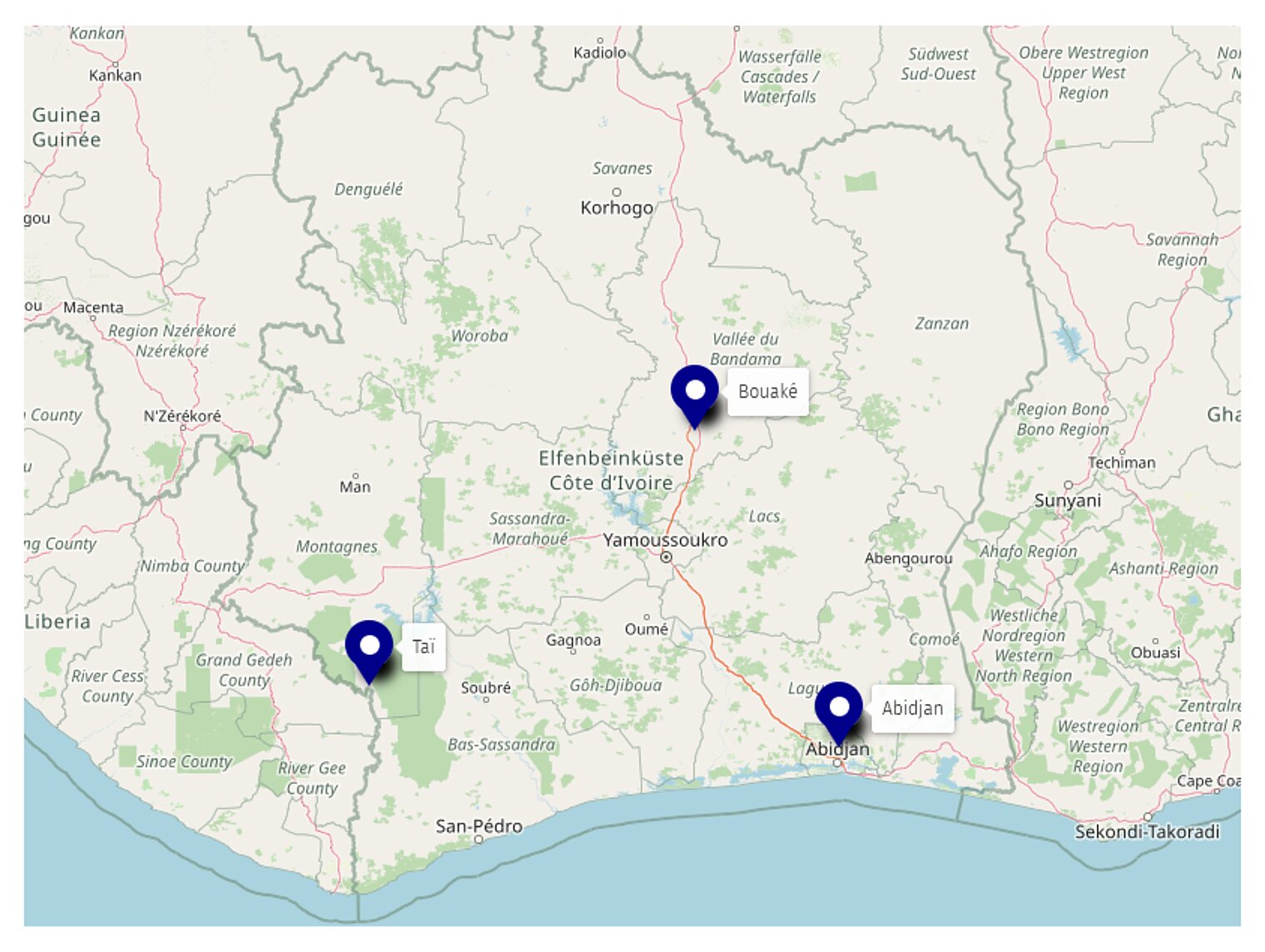
Our mission in November 2024 focused on improving the investigation of acute disease outbreaks, particularly through the use of advanced diagnostic technologies, as well as exploring opportunities for collaboration on the subject of antimicrobial resistance.
Day 1 to 2 (November 3-4): Arrival in Abidjan
The mission began with the departure of our five-person team comprising members of three HIOH departments and an Ivorian partner from CHUB, who had previously spent several weeks at HIOH as a guest researcher. After organizing the logistics for the transport of several large packages of laboratory equipment at the airport in Berlin, we arrived in Abidjan late in the evening. Our first task after arrival was to get local SIM cards and cash to be prepared for the trip to Bouaké the next day.
Day 3 (November 5): Drive from Abidjan to Bouaké
The next morning, we were picked up by CHUB drivers and began our four-hour drive to Bouaké. During the journey, we had the opportunity to admire the breathtaking landscape of Côte d'Ivoire - including a stopover in Yamoussoukro, the country's political capital.
When we arrived in Bouaké, we were warmly welcomed by the local CHUB team and actively assisted in unloading our equipment. We then moved into our accommodation, where some of us would stay for two weeks and others up to six weeks.
Day 4 (November 6): First meetings and setting up the laboratory
Our first full day in Bouaké began with meetings with the management of CHUB, including the Director General, the Head of Medical Services and the Scientific Coordinator of our PAcCI project. On this occasion, we were also able to officially hand over the new Illumina iSeq system - a state-of-the-art instrument for rapid and high-resolution sequencing of DNA, which will greatly simplify the identification of pathogens in the future - to our CHUB partners.
A highlight of the day was our visit to the CHUB's molecular diagnostics and bacteriology laboratory. We met with members of the team and learned more about their work. The state-of-the-art molecular laboratory, which was funded by the German Ministry of Health and the Federal Ministry of Education and Research, is of central importance for research into infectious diseases and zoonotic pathogens, and enables screening for pathogens such as the Monkeypox virus (Mpox), dengue fever and many others. It is a prime example of the successful cooperation between HIOH, RKI and local institutions.
Our next task was to familiarize ourselves with the lab space, assess the local conditions, and start preparing for the planned lab work.
Day 5 to 12 (November 7-14): Working in the lab and optimizing technologies
Once the molecular laboratory was fully equipped, we focused on strengthening local diagnostic capacities. We started performing PCR tests on various samples, such as suspected Mpox cases. Although they were negative, we also tested for other pathogens, such as the herpes viruses HSV-1, HSV-2 and VZV, to refine the differential diagnosis and improve diagnostic accuracy in the field. We then prepared libraries of HSV-positive samples and trained the on-site laboratory team in the hybridization capture technique, a DNA enrichment technique to improve pathogen detection. The first sequencing run on the iSeq 1000 platform successfully delivered a complete genome sequence from a herpesvirus-positive sample.
In addition, we tested controls for orthopox and anthrax, validated another analysis method (RT-qPCR assays) and helped set up a serology room at the CHUB, including for IgG/IgM dengue ELISA assays to detect antibodies against certain pathogens. In addition, members of HIOH department “Epidemiology and Ecology of Antimicrobial Resistance” presented their research findings and discussed them with local experts - a first step towards future collaborations that further strengthened the partnership between HIOH and CHUB.
Day 13 (November 15): Reinforcement of the team
As the mission progressed, we were joined by three additional HIOH team members and two doctoral students from the HZI. As part of the ELIPSA (Establishment of Epidemic Panels for One Health Surveillance In Sub-Saharan Africa) and SCienCe (Continuous Clinical Surveillance in the OHS pilot region in Côte d'Ivoire) projects, they are also working on establishing long-term structures for human, animal and environmental health monitoring (One Health Surveillance) in our African model regions. To this end, they are establishing a human cohort of healthy volunteers in the region around the Taï National Park in Côte d'Ivoire and systematic clinical monitoring of patients in collaboration with local hospitals. The official social dinner with the project managers and colleagues from the institutions involved in the mission provided an excellent opportunity for lively discussions and exchange of experiences.
Day 14 to 15 (November 16-17): Cultural discoveries and summit hike with birdwatching
Although our work in the lab was our main focus, we also took time over the weekend to immerse ourselves in the local culture: at the pottery market, where we admired the craftsmanship of the local artisans and bought some small souvenirs, and at the fabric market in Bouaké, which is famous for its colorful textiles.
Ivorian cuisine also became an important part of our experience, with dishes such as attiéké (fermented manioc), alloco (fried plantains), and freshly grilled fish or chicken, all of which we enjoyed at the local maquis restaurants.
While we returned to our laboratory work, part of our travel group took advantage of the stopover in Bouaké on their way to the Taï National Park for a unique excursion: on a hike northwest of Bouaké, they climbed a mountain that offered a breathtaking panoramic view of the surrounding jungle and the diverse birdlife: of rare species such as the kingfisher, bird of paradise, weaver bird and several hornbills - and which concluded with an incredible sunset.
Day 16 (November 18): Official reception of the ELIPSA/SCienCe team and cooperation talks at CHUB
After the warm welcome of the ELIPSA/SCienCe team by the Director General of the CHUB, the day was dedicated to scientific project presentations and discussions to promote the exchange of knowledge and possible collaborations.
While the newly arrived team toured the hospital and laboratories, we focused on obtaining permits to collect water samples for the planned projects of our department “Epidemiology and Ecology of Antimicrobial Resistance”. To this end, we visited the water authority of Bouaké. Three lakes, including one that had previously been contaminated by a chemical leak, were selected for sampling and analysis.
This environmental and health monitoring is crucial for assessing contamination risks and protecting local water sources.
In the evening, we said goodbye to the ELIPSA/SCienCe team, who were preparing to leave for Taï National Park, and shared a last Ivorian dinner.
Day 17 to 19 (November 19-21): Inspection of the mobile laboratory and joined forces in the fight against antimicrobial resistance
Our last days in the molecular lab were dedicated to a thorough inspection and inventory of the mobile CHUB lab to ensure that all equipment is in optimal condition for the upcoming workshop in February 2025 in collaboration with the RKI and the Bundeswehr Institute of Microbiology, Munich (IMB).
In the meantime, our AMR team focused on exploring further opportunities for cooperation in the field of antibiotic resistance. We met with the head of the veterinary office in Bouaké and conducted a training session on laboratory techniques in the bacteriology laboratory. Our last day ended with a feedback session. Conclusion: Our common goal of strengthening diagnostic capacities in Bouaké and promoting cooperation in the field of antibiotic resistance is on a promising path!
Day 20 (November 22): Conclusion and departure
After 20 days of productive work, our assignment in Côte d'Ivoire came to an end. While one member of our HIOH travel group stayed on for another three weeks, the rest of us returned to Europe, enriched by our experiences in Bouaké. Our mission is accomplished - for this time. In addition to many new contacts and successful meetings, we will certainly remember the cultural explorations and fascinating nature observations on our trip for a long time to come.
À bientôt, Côte d'Ivoire!

